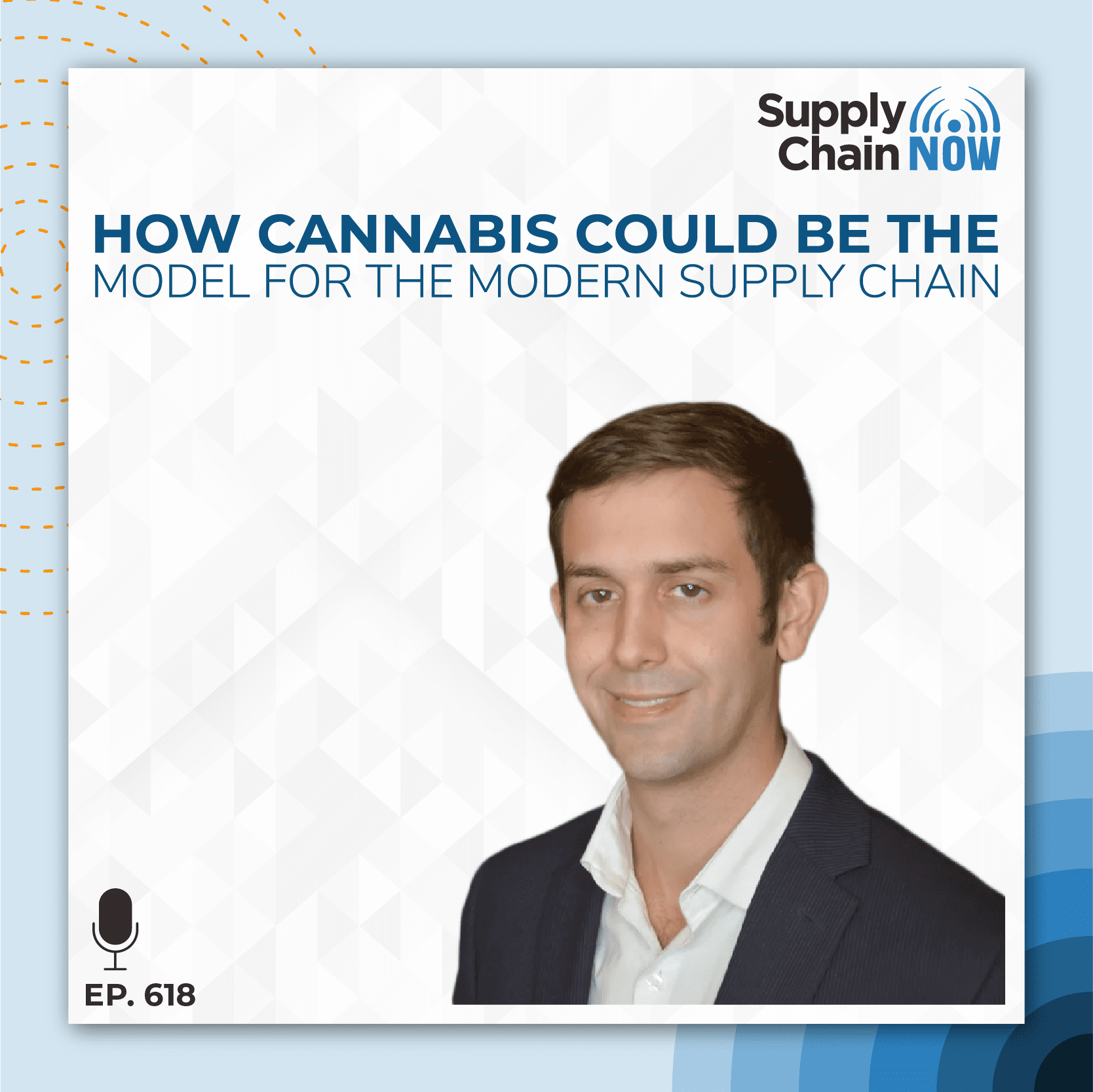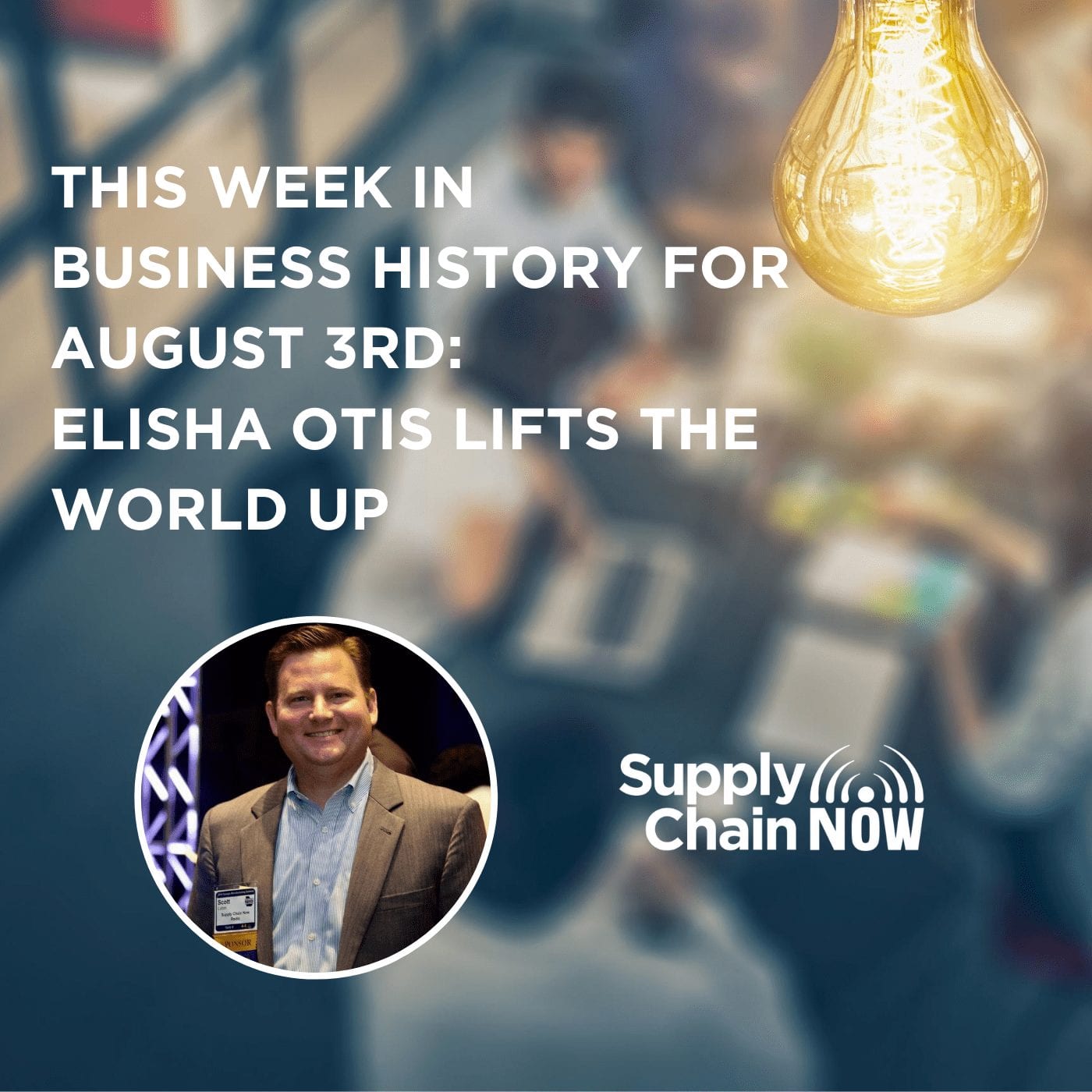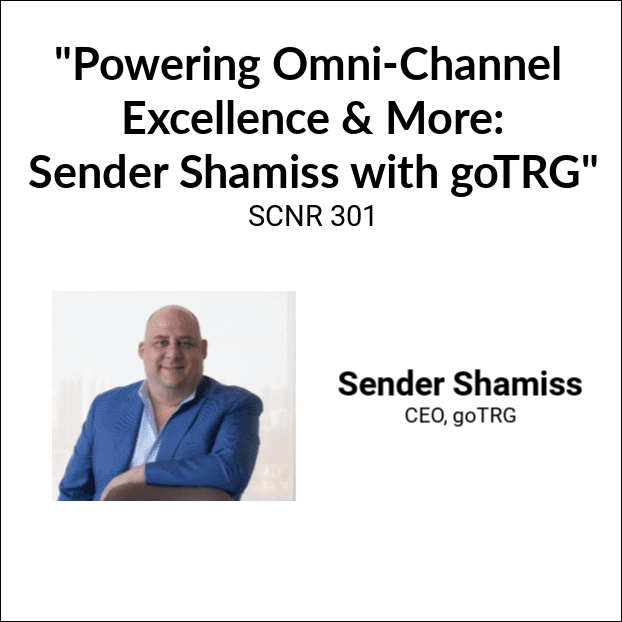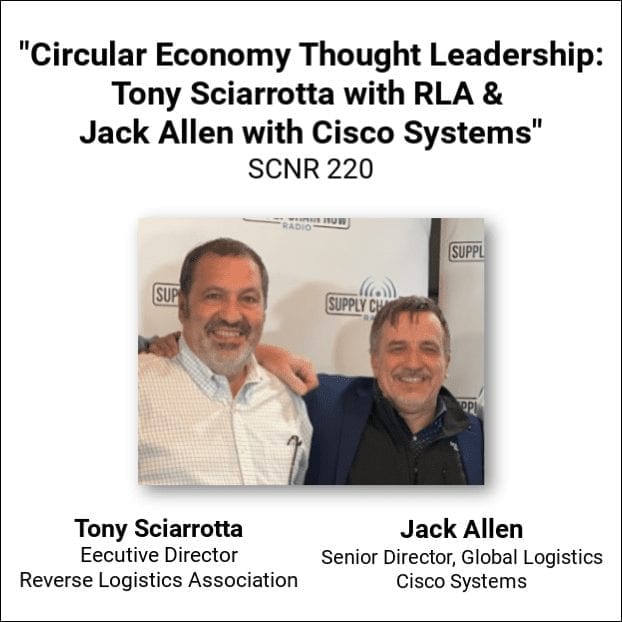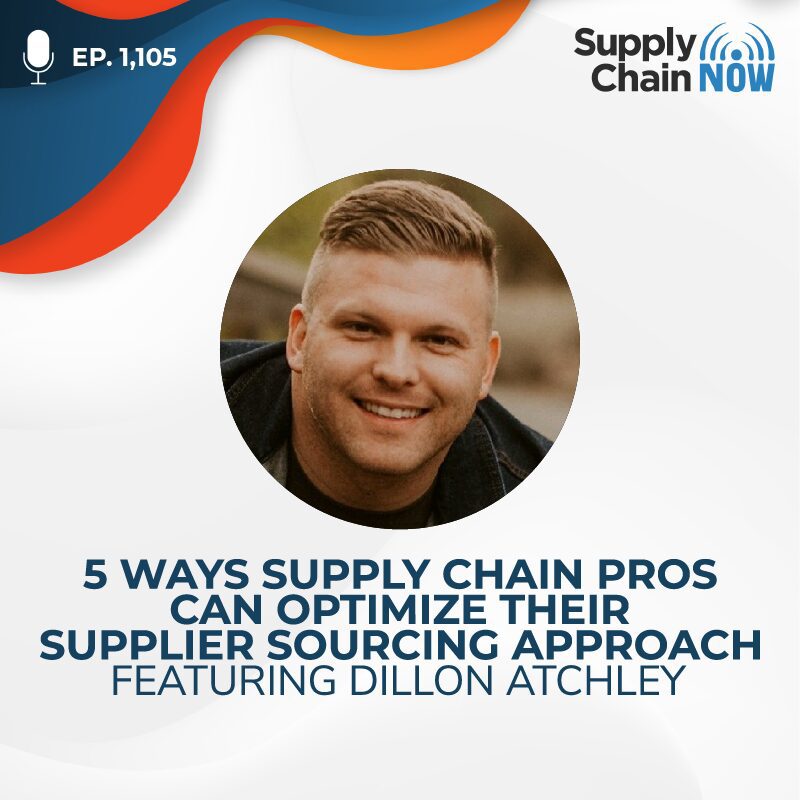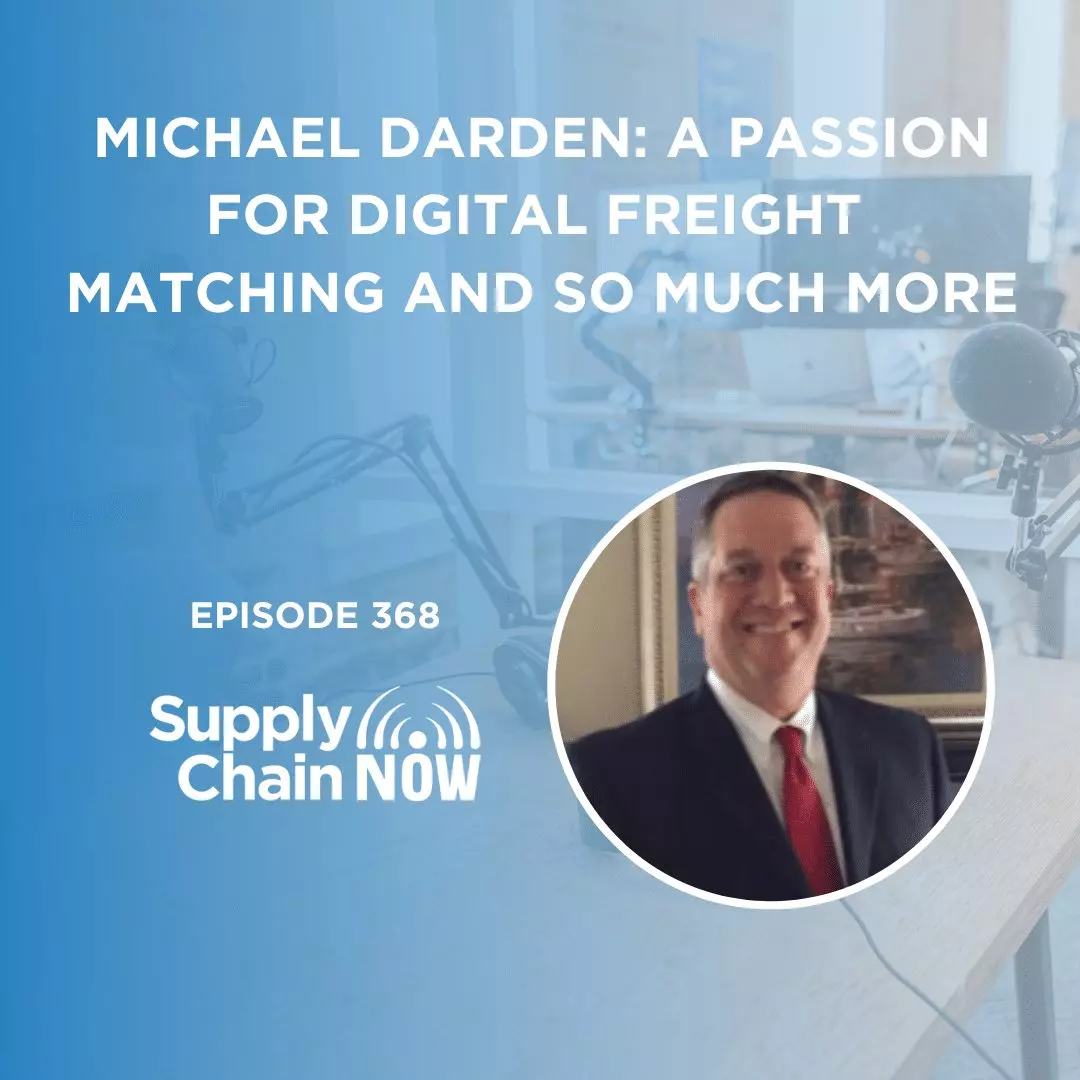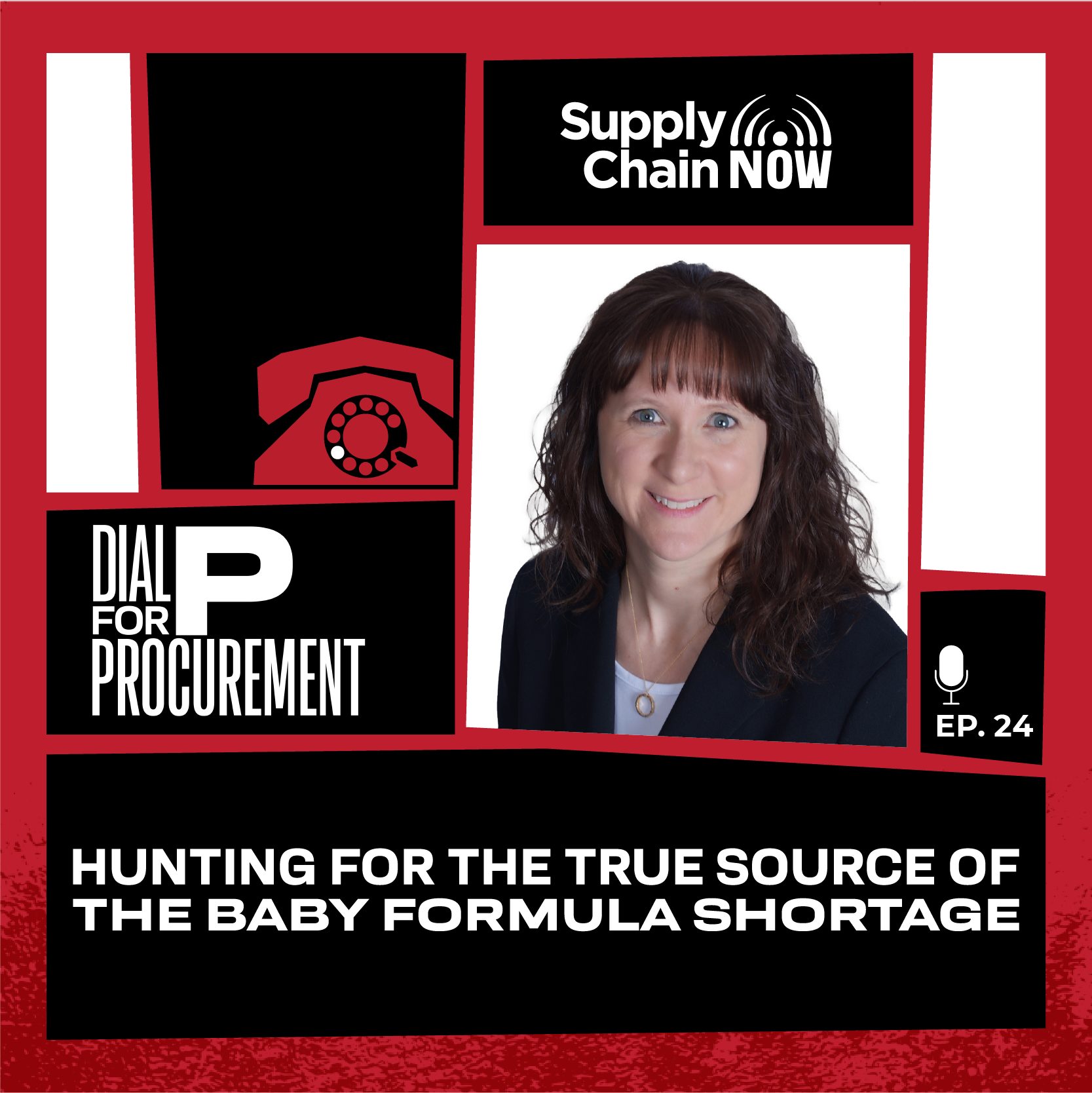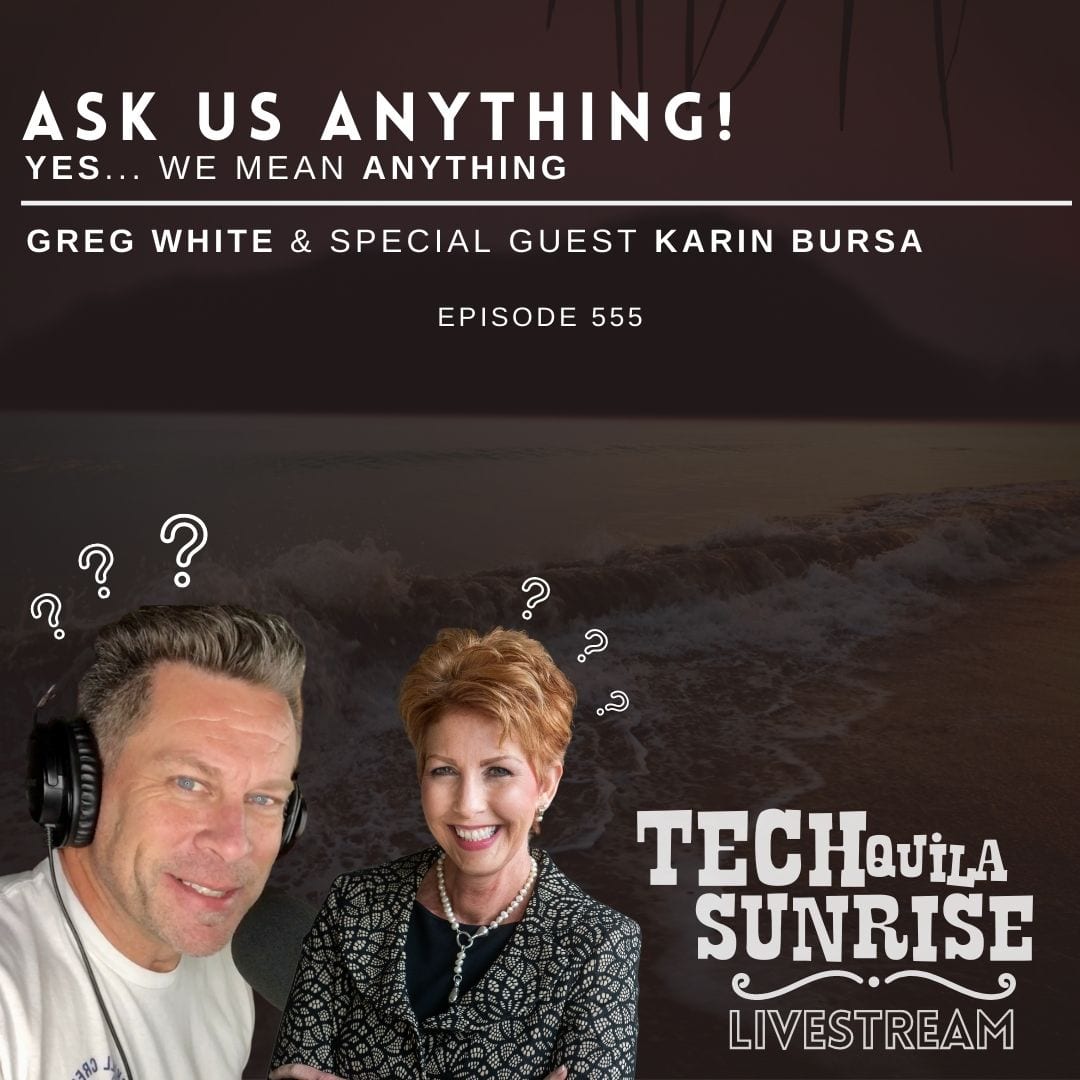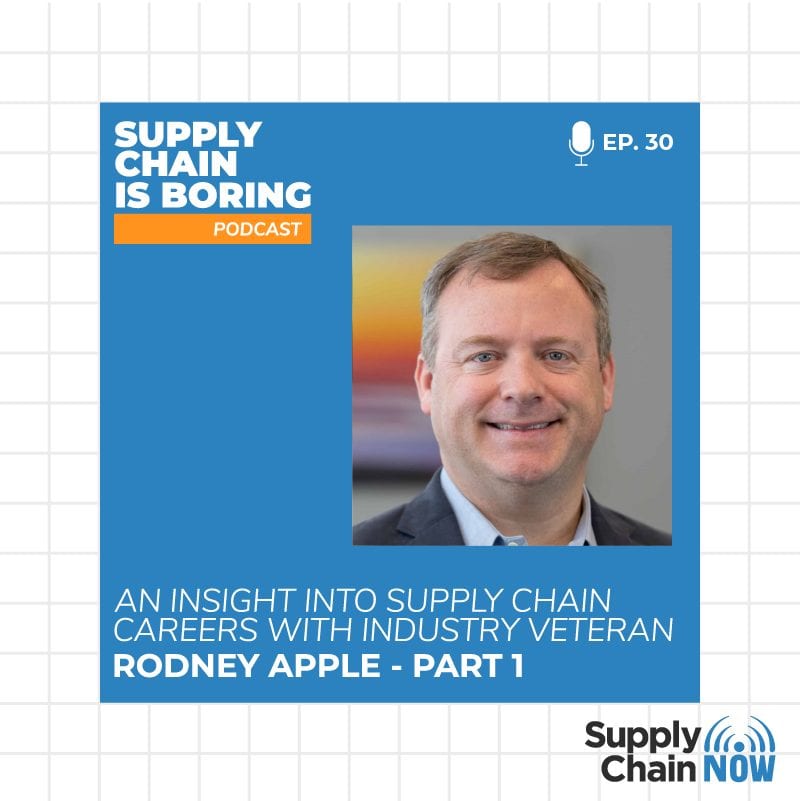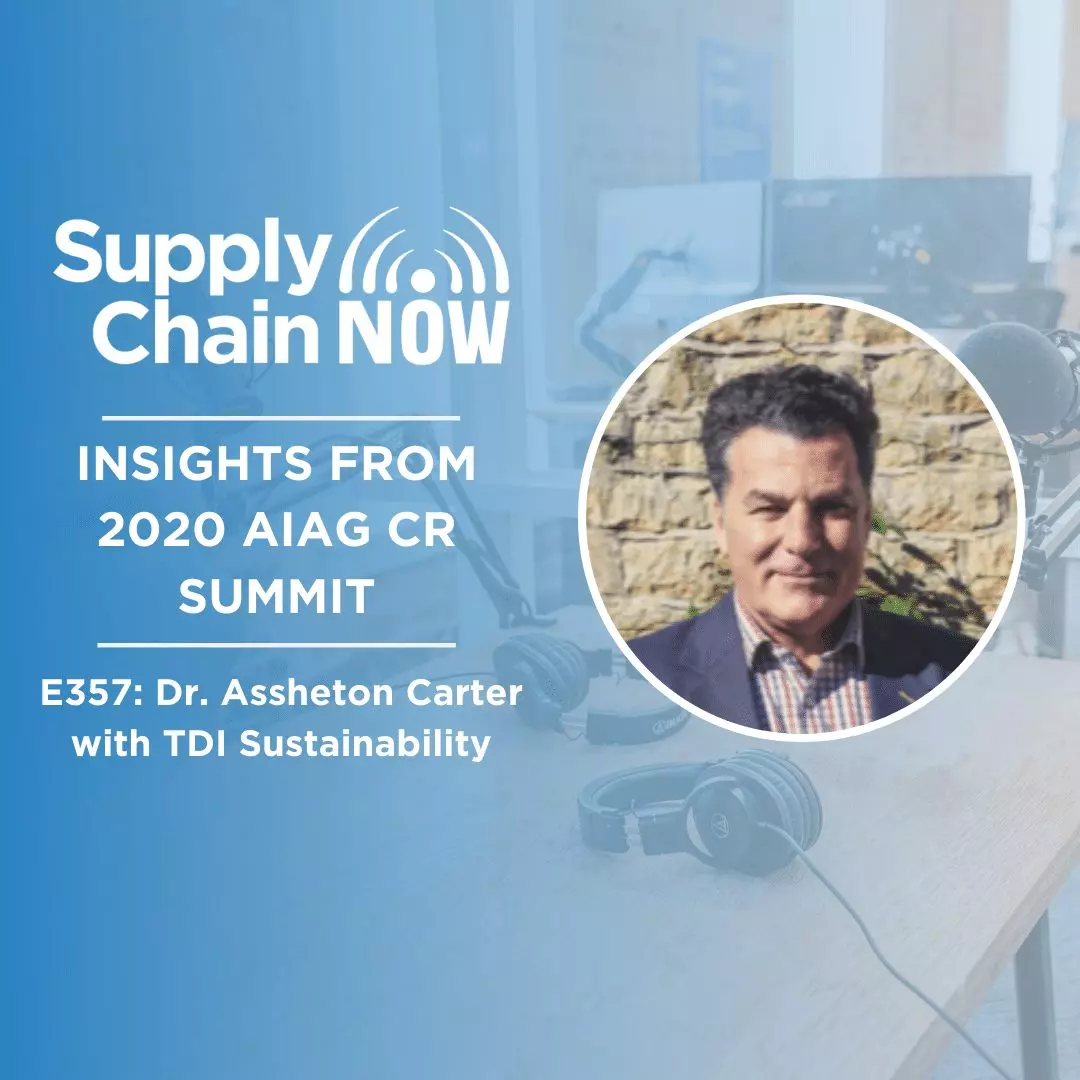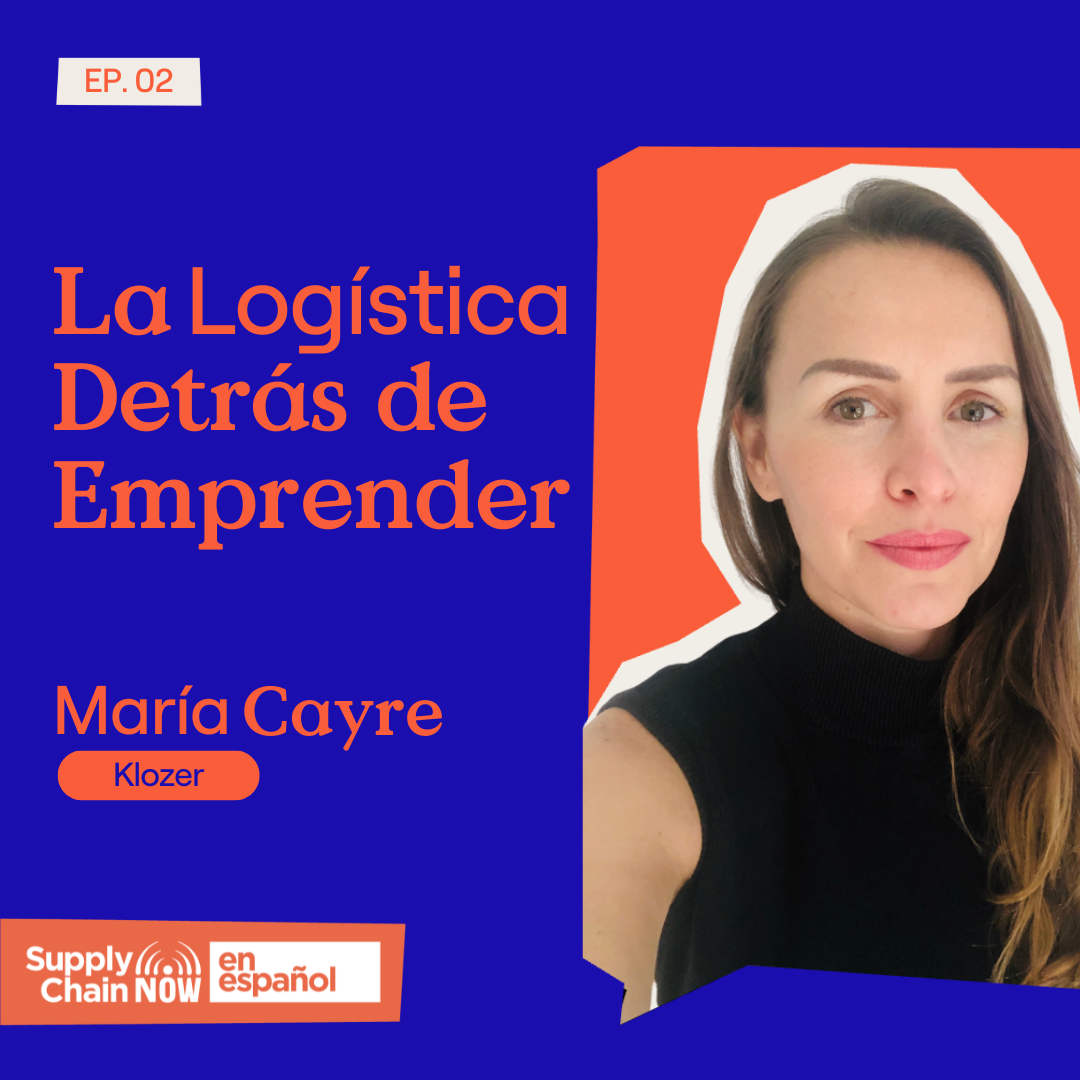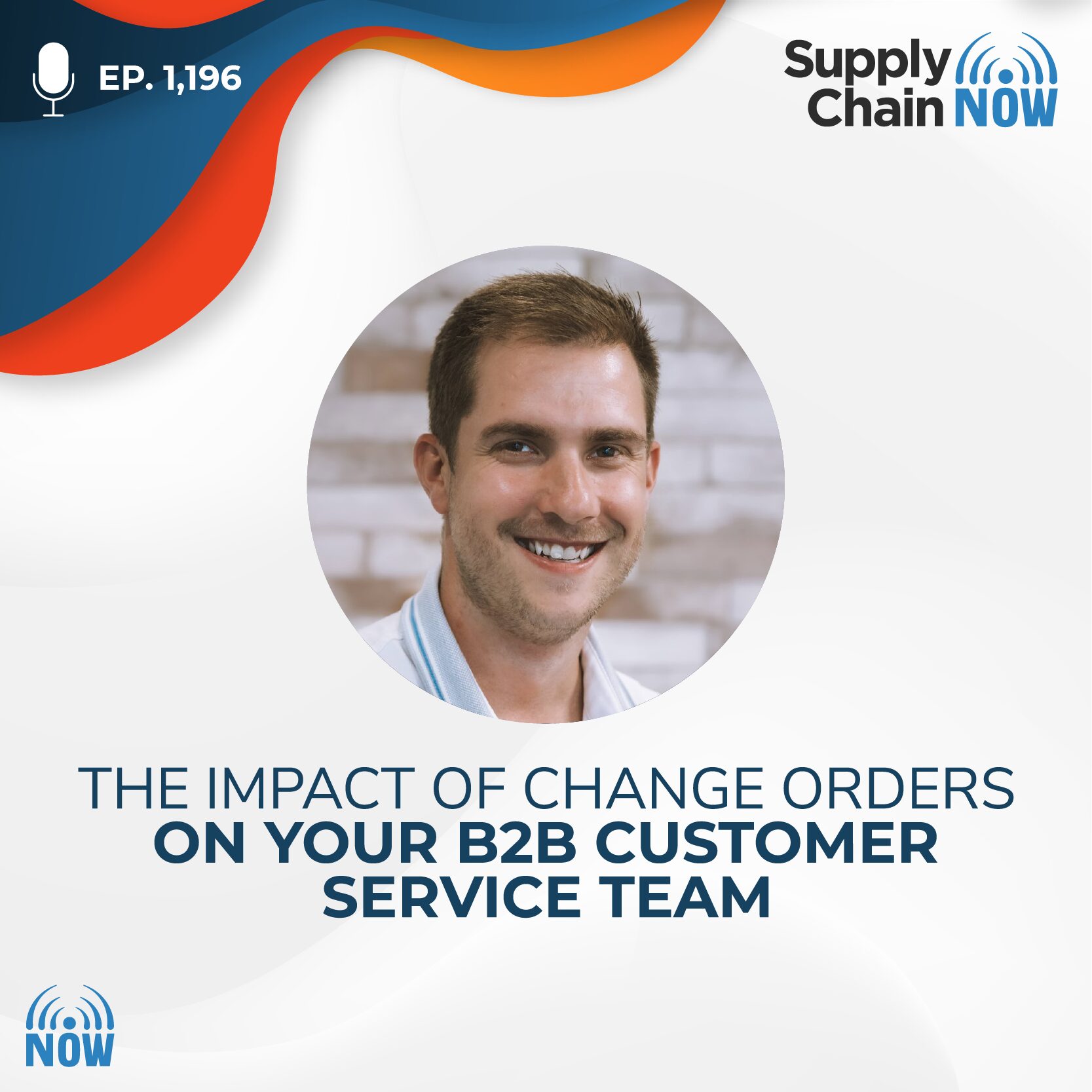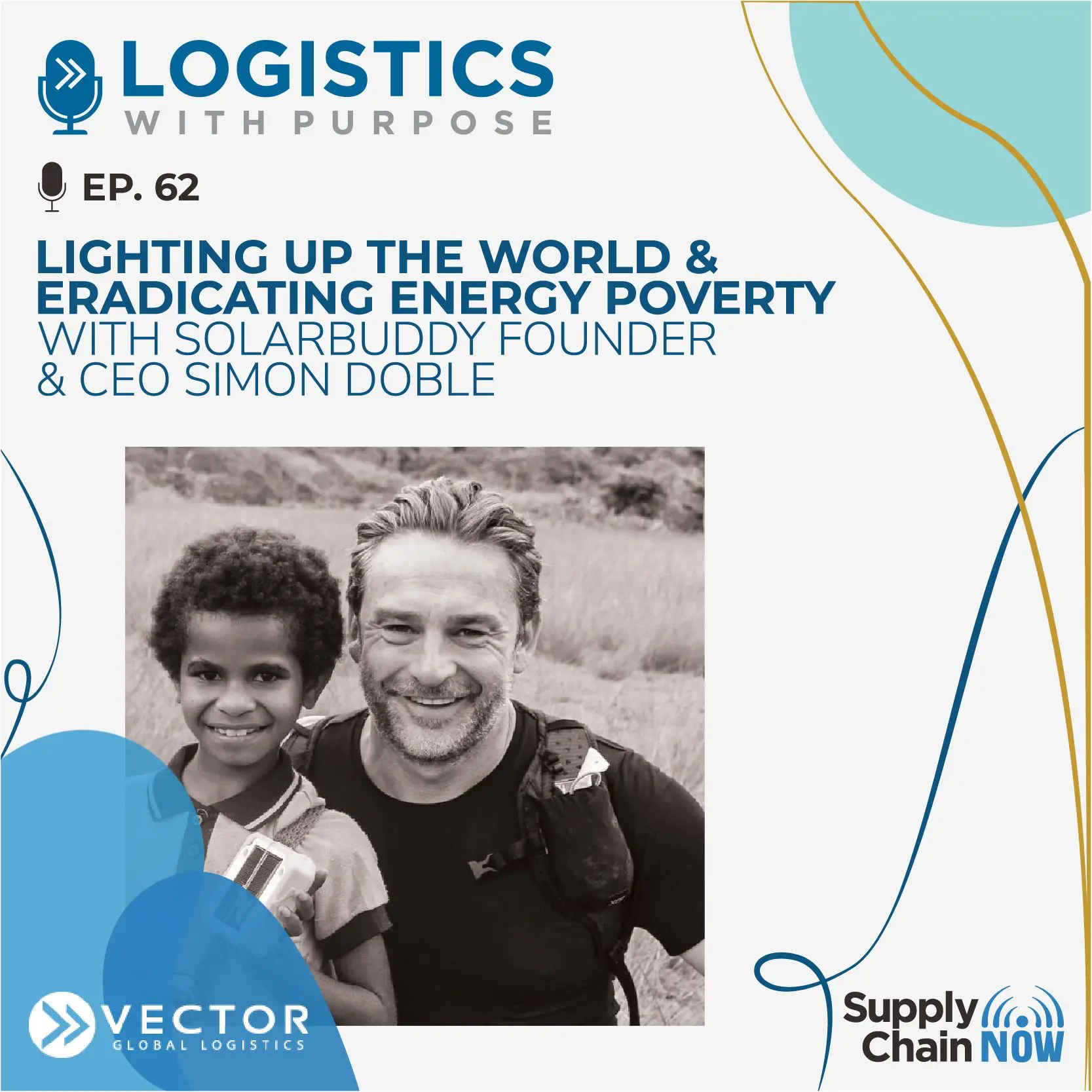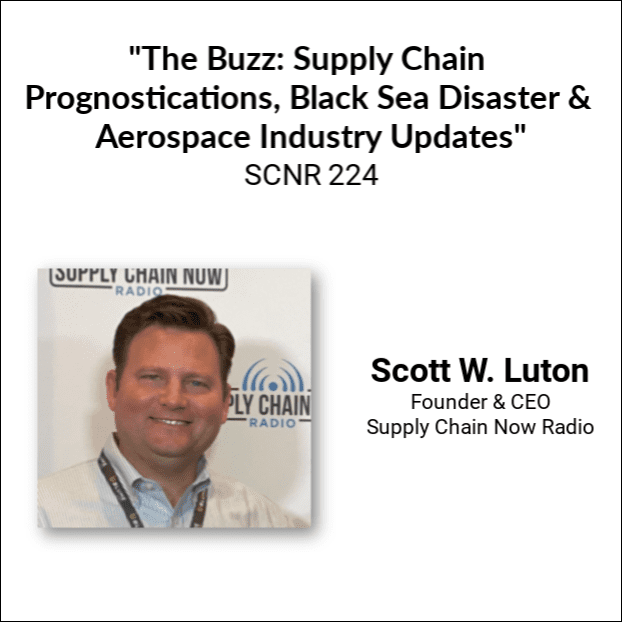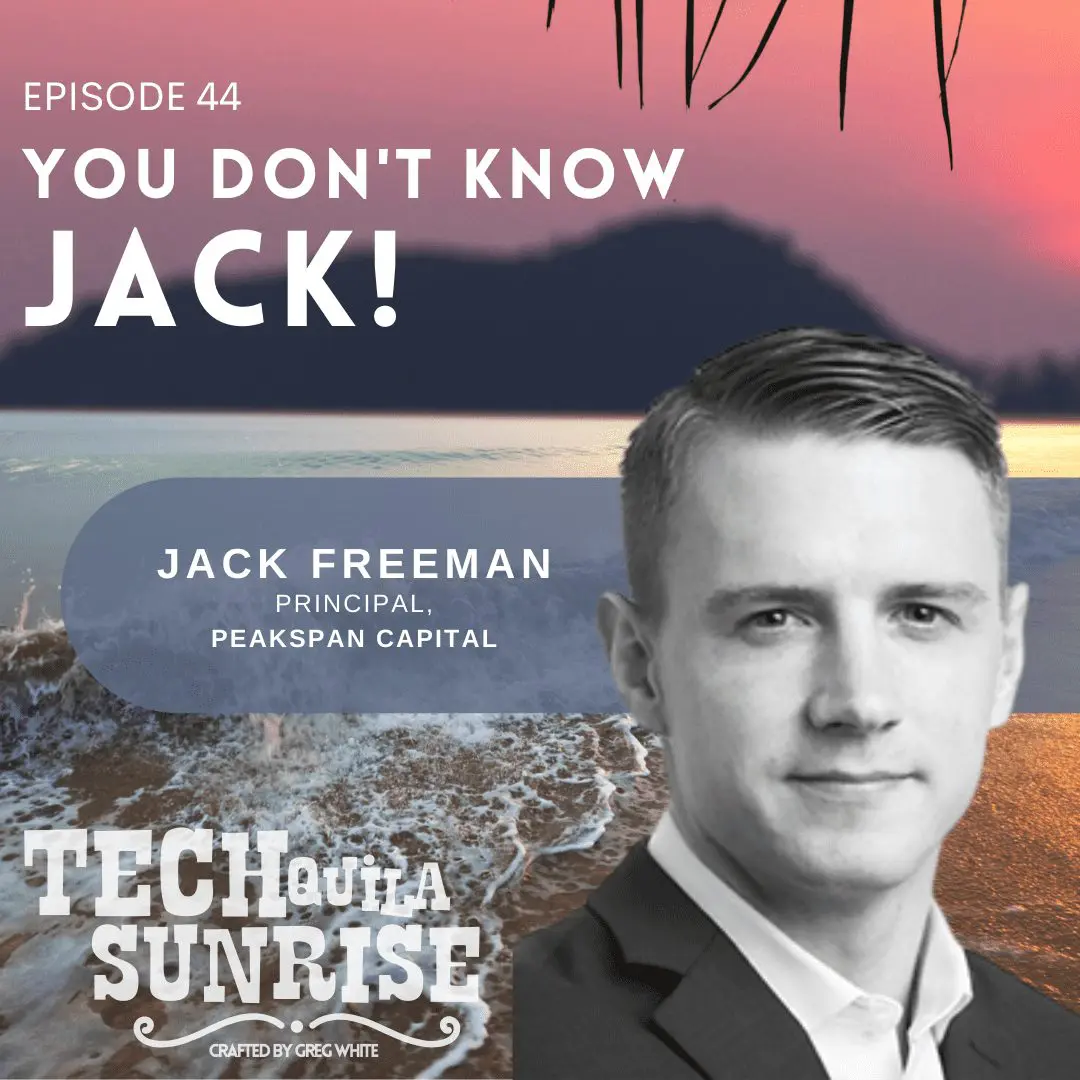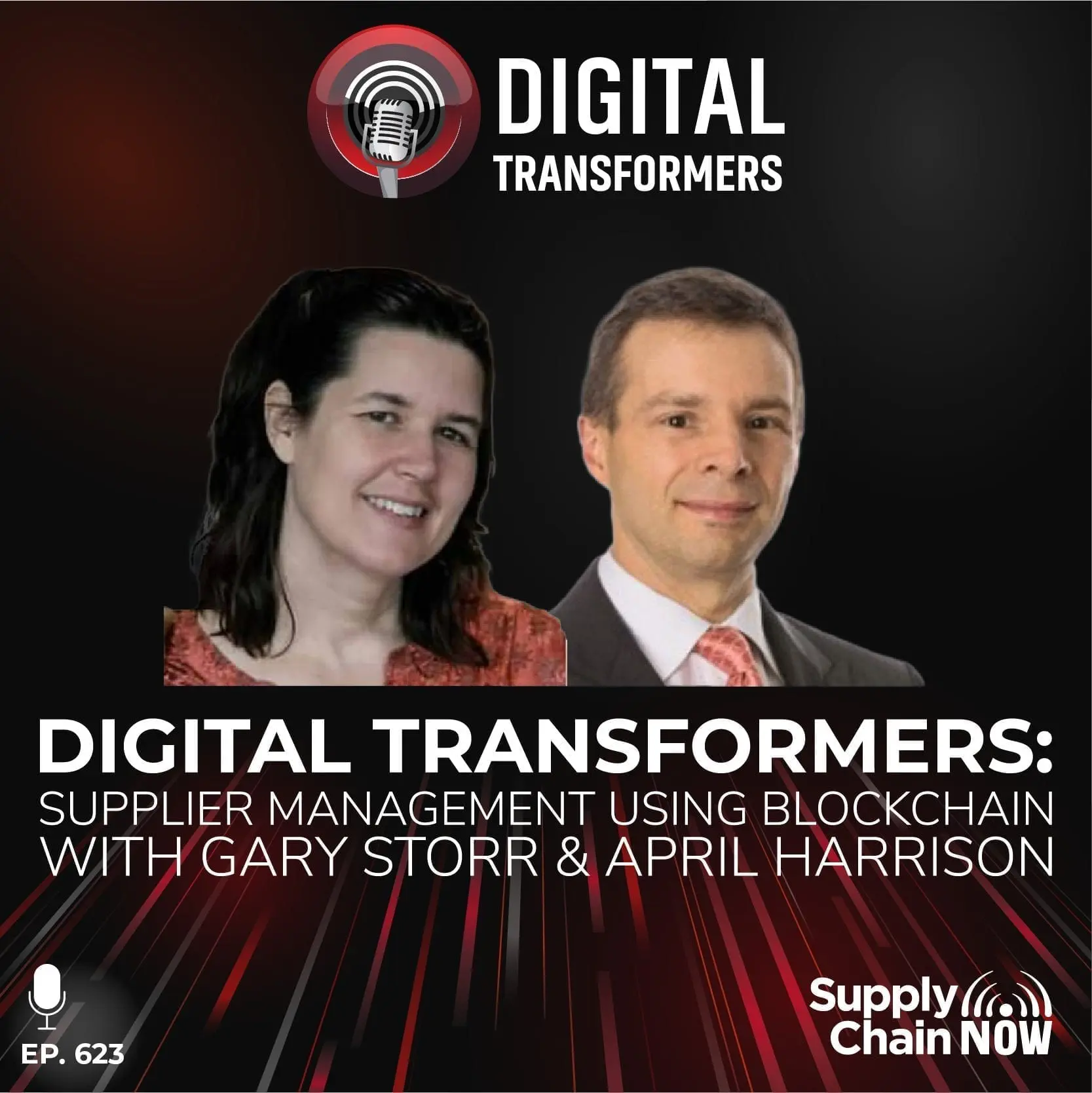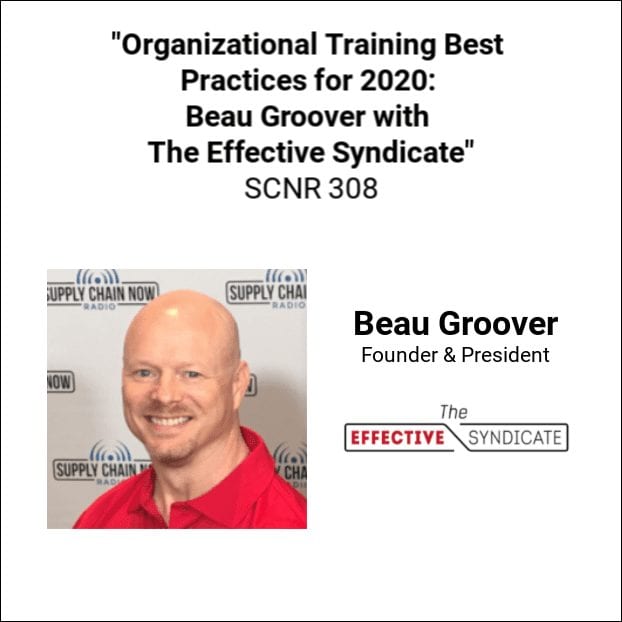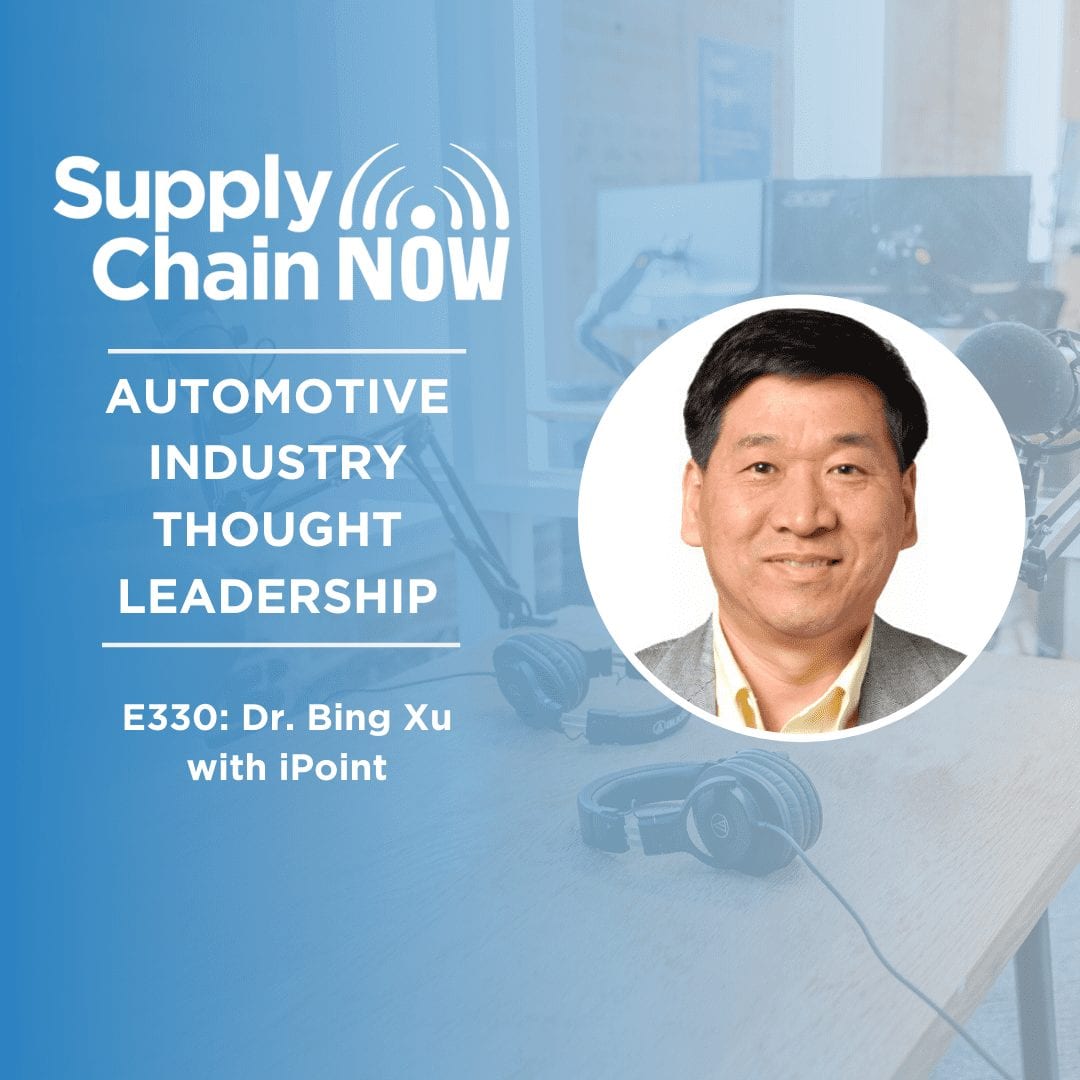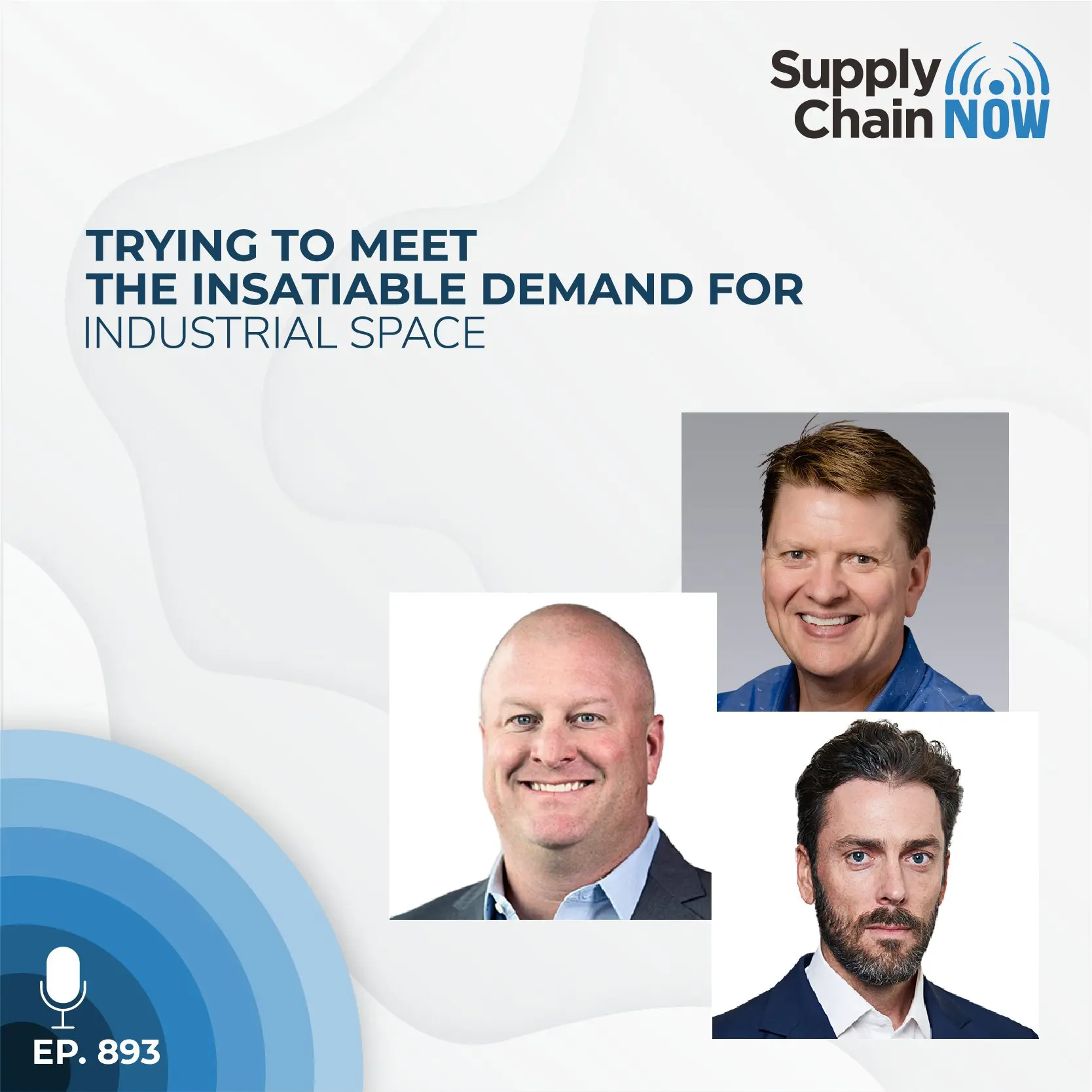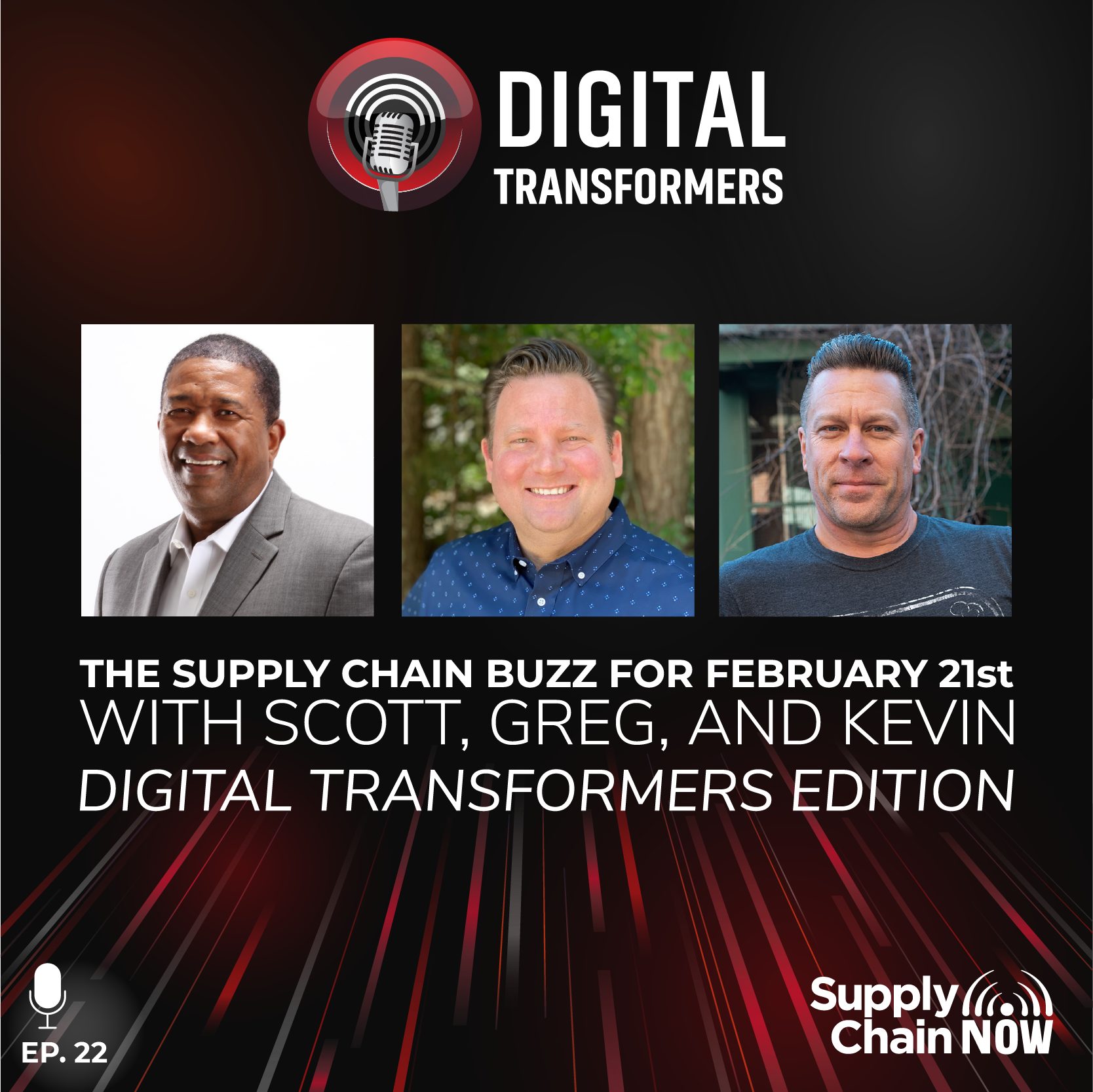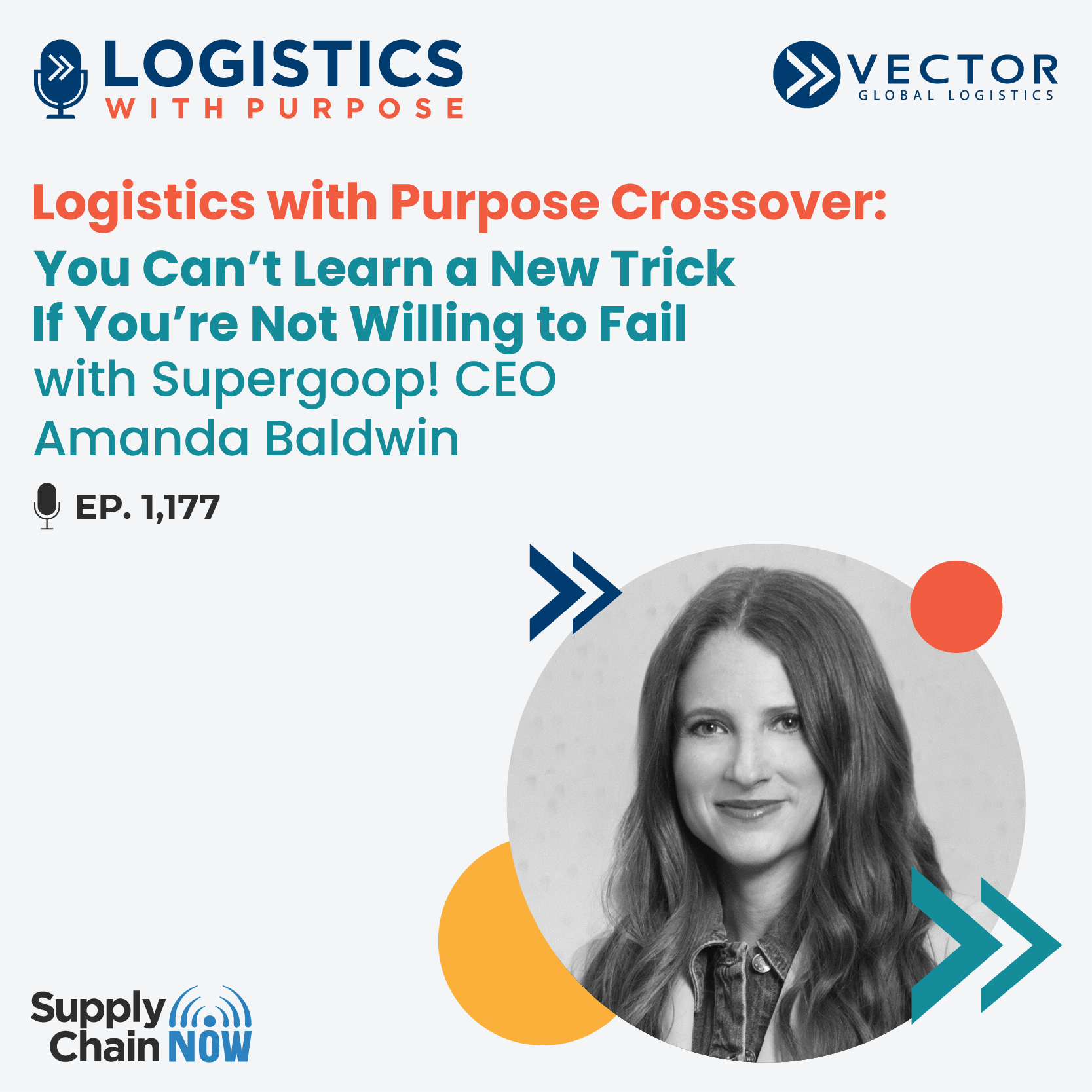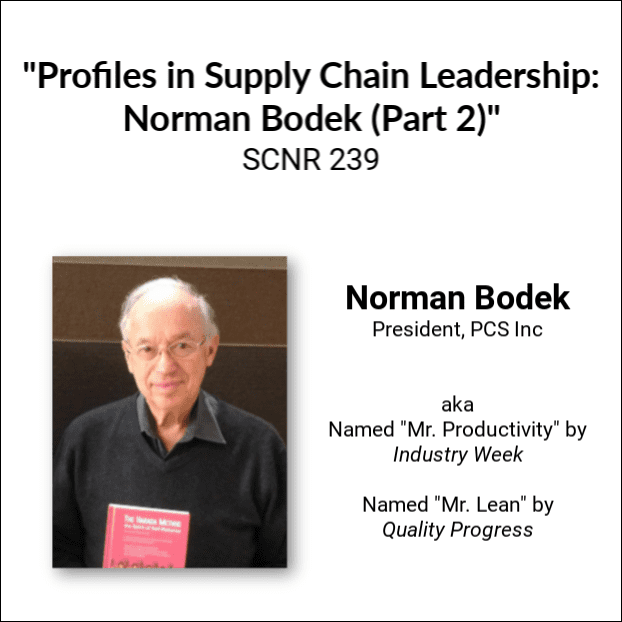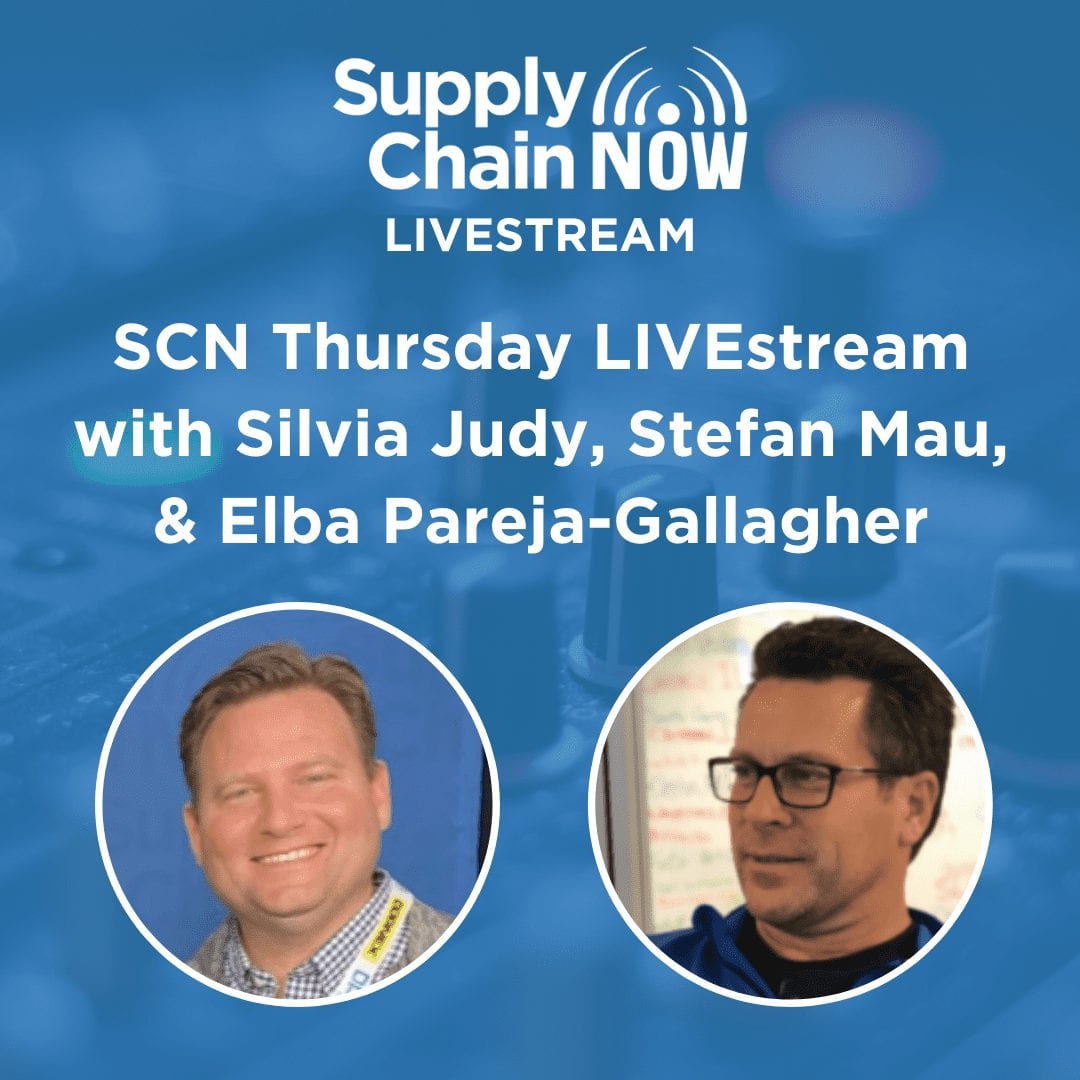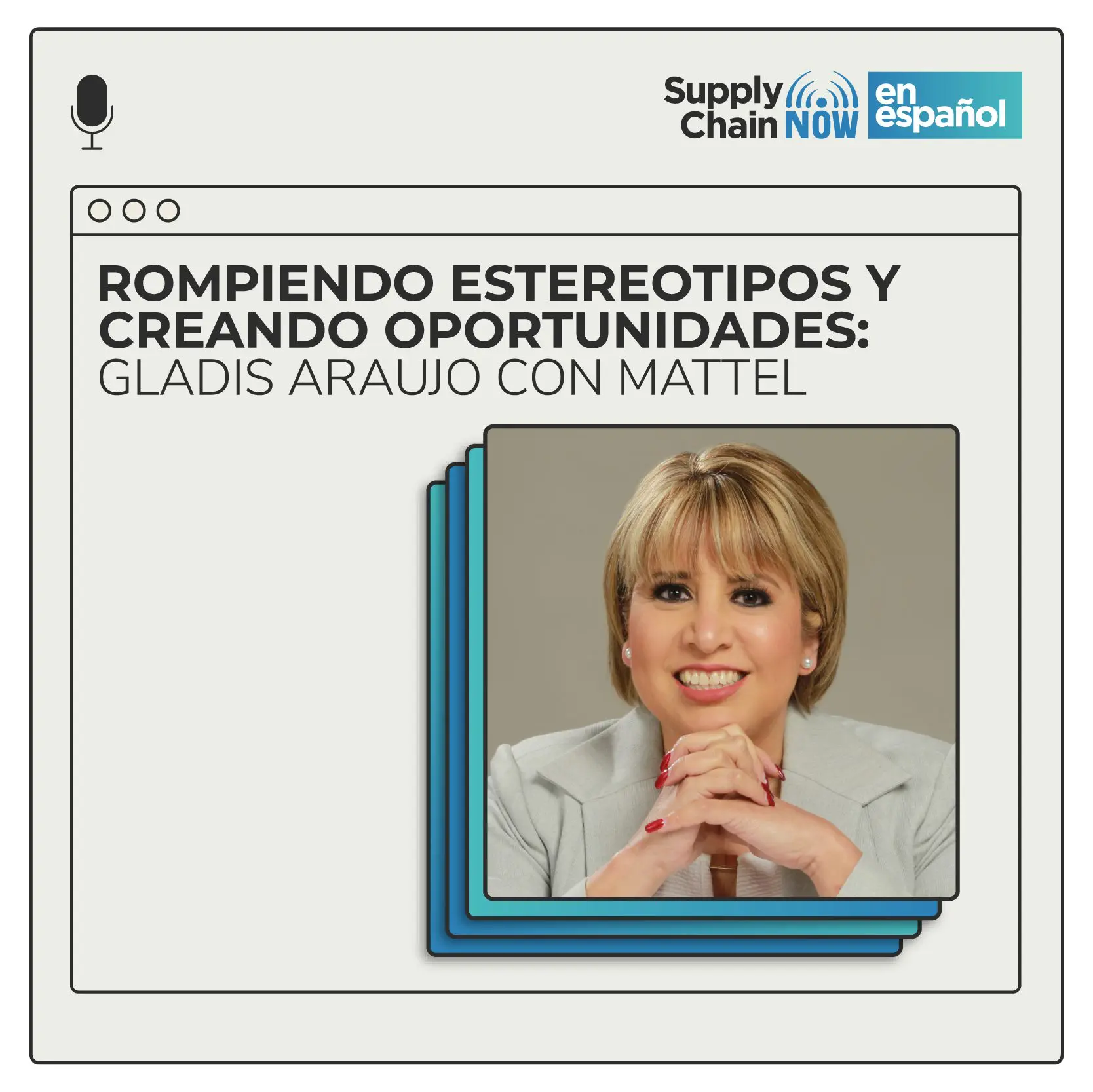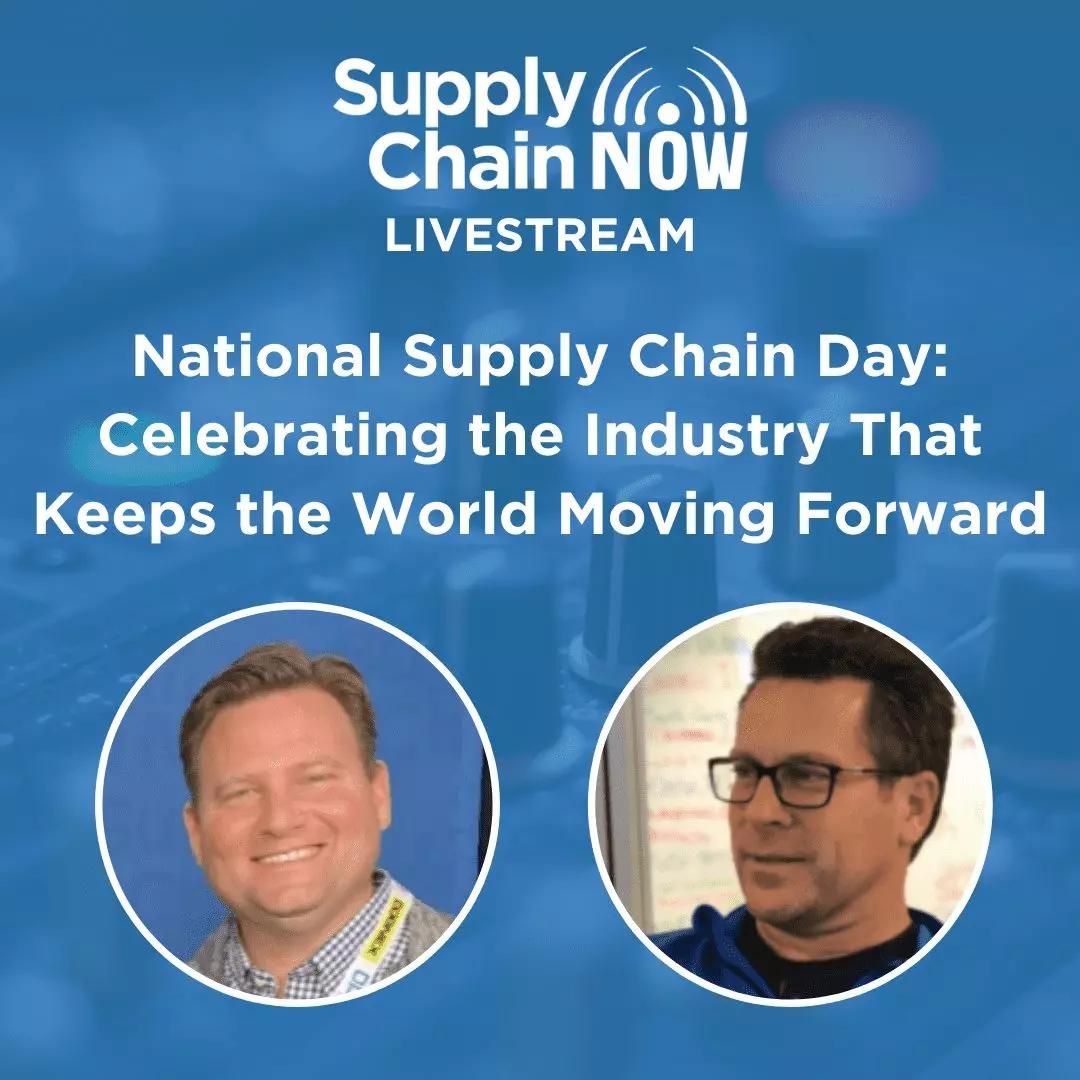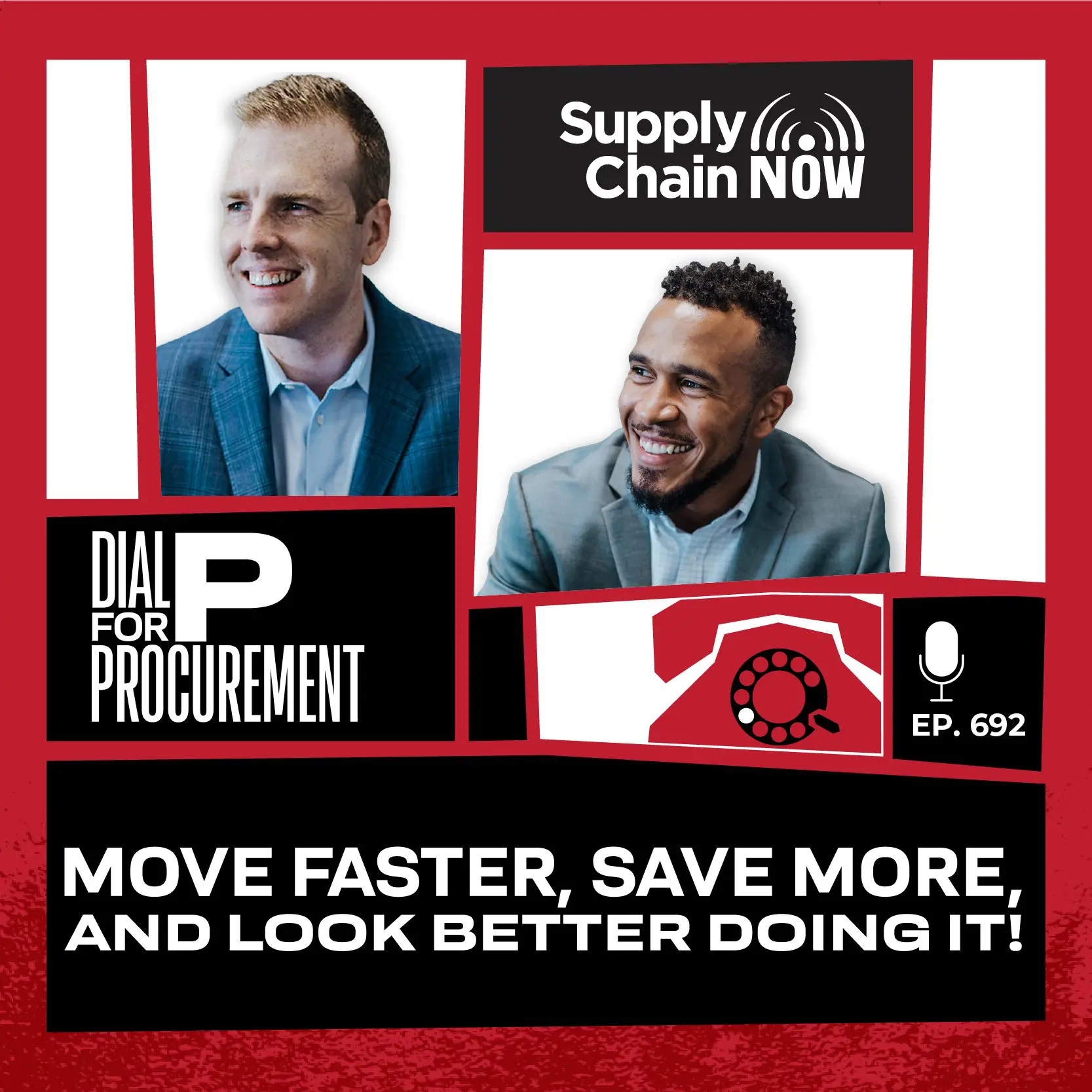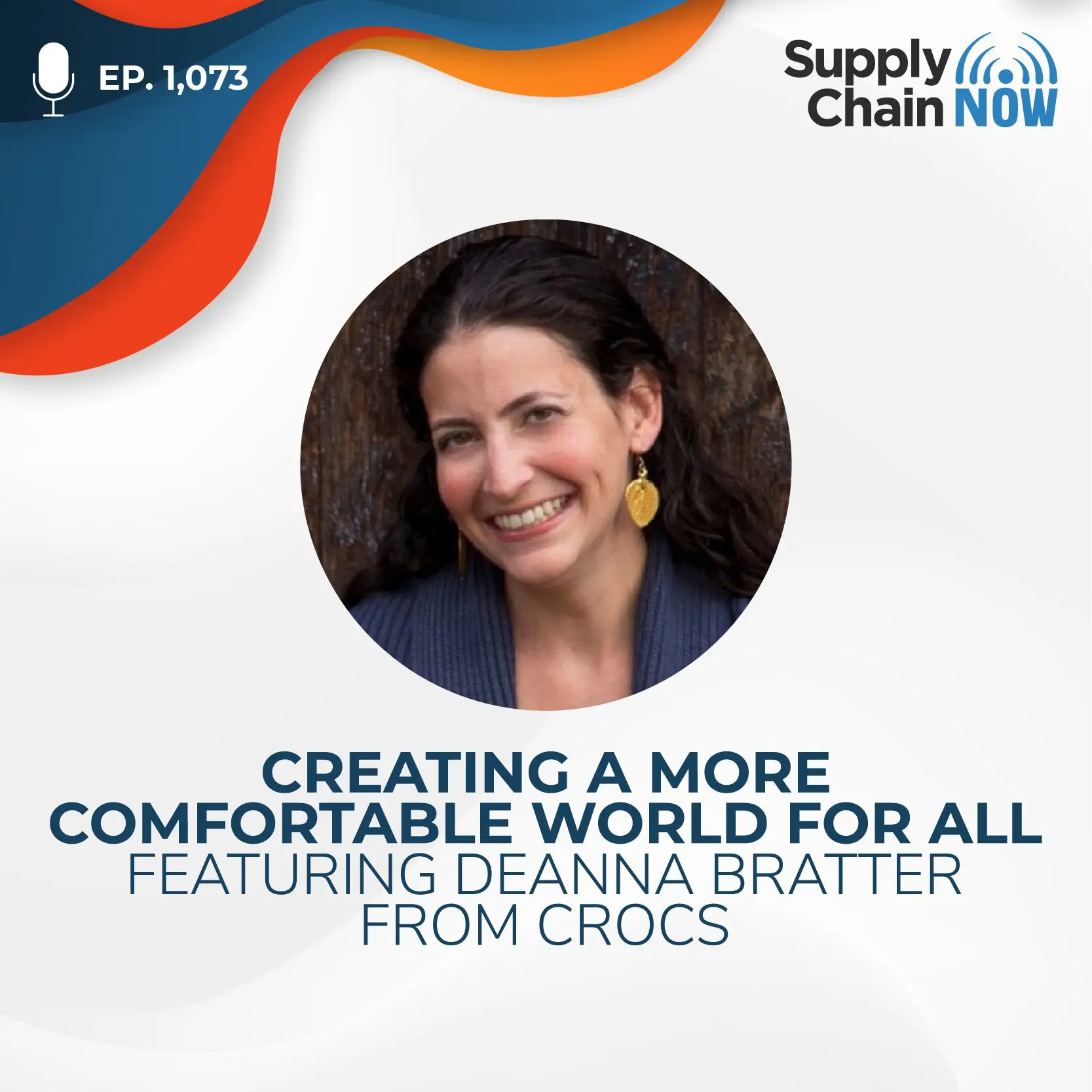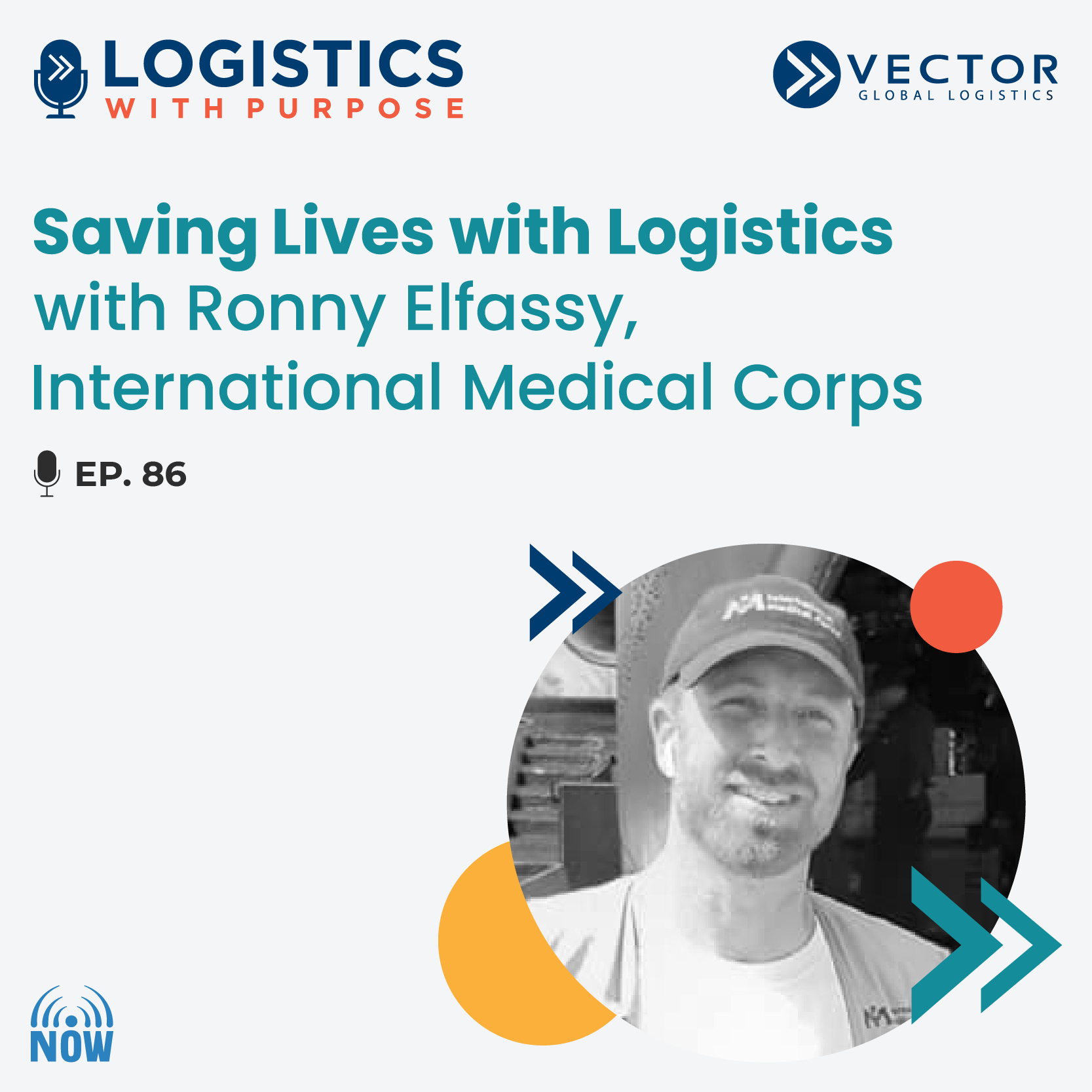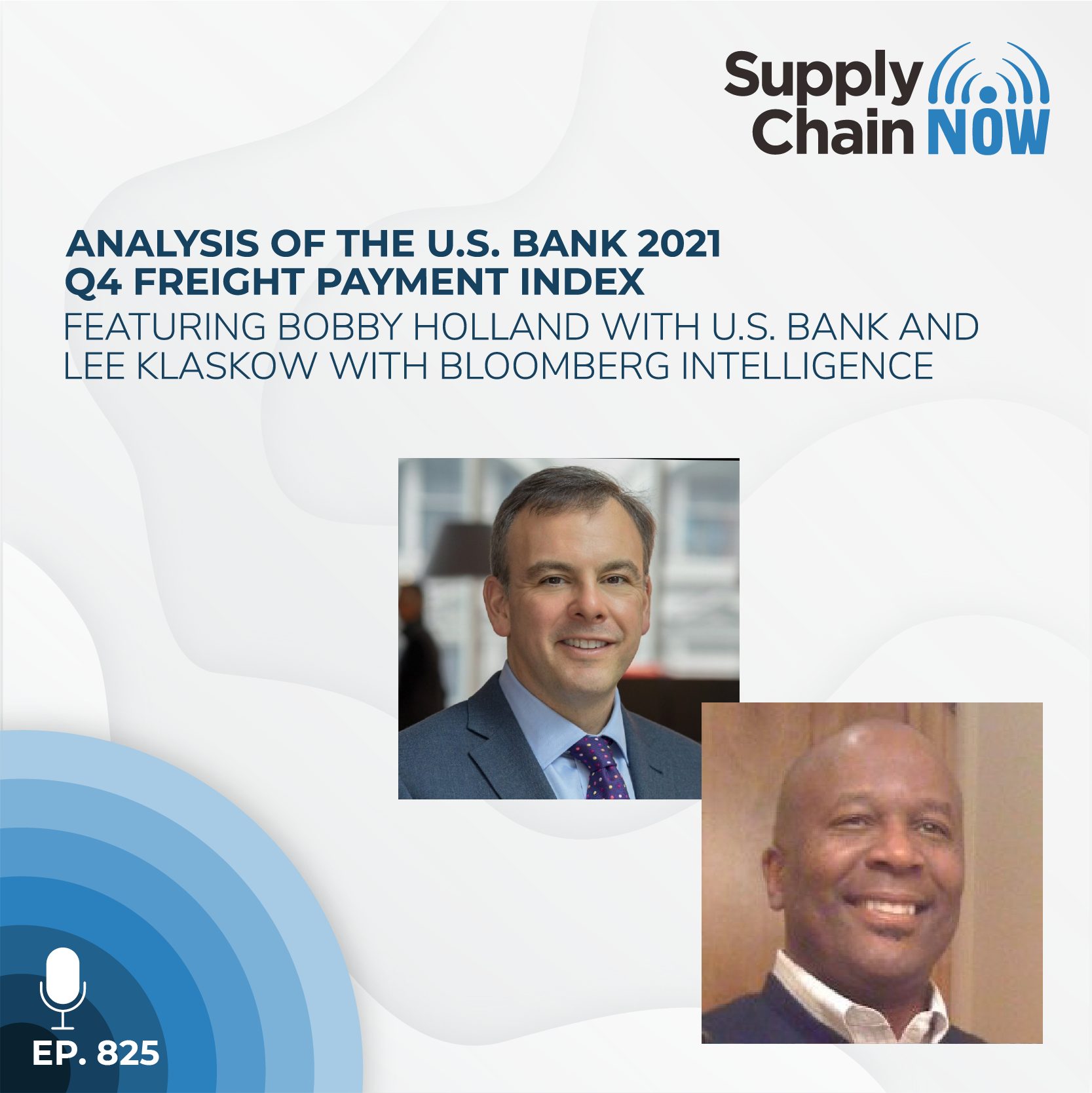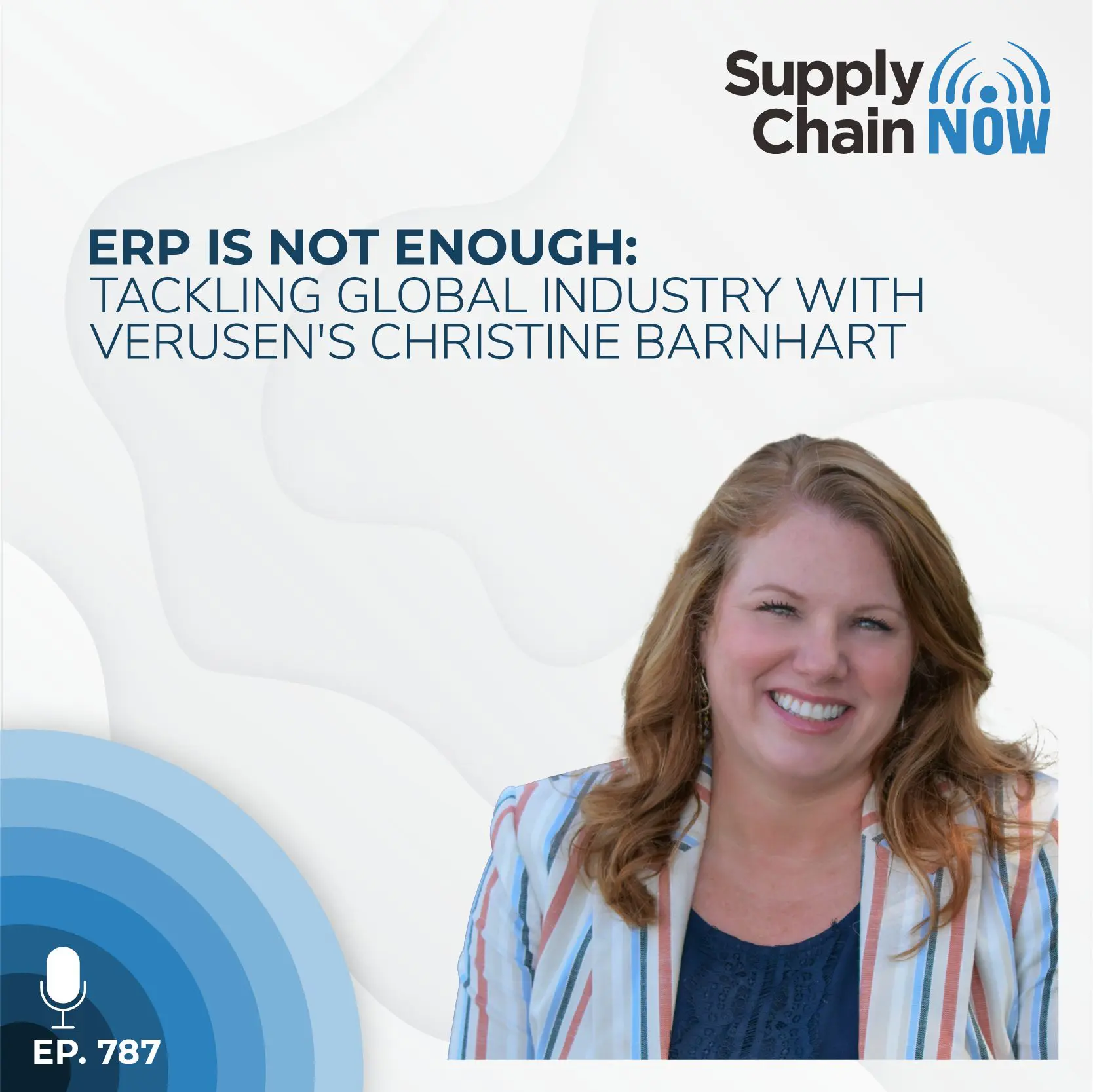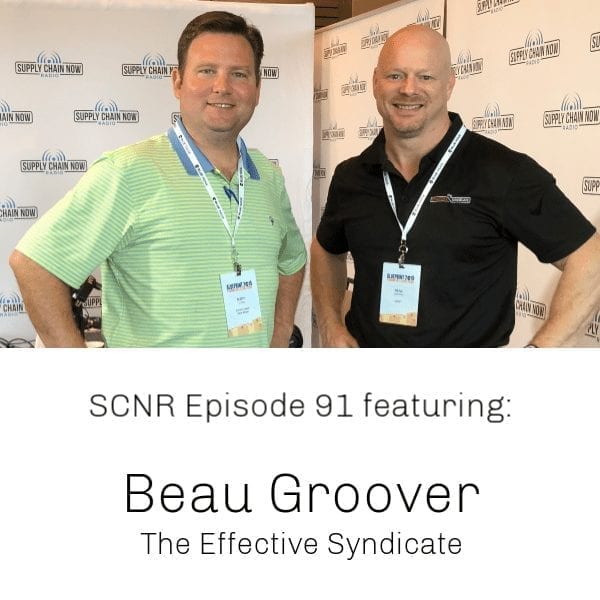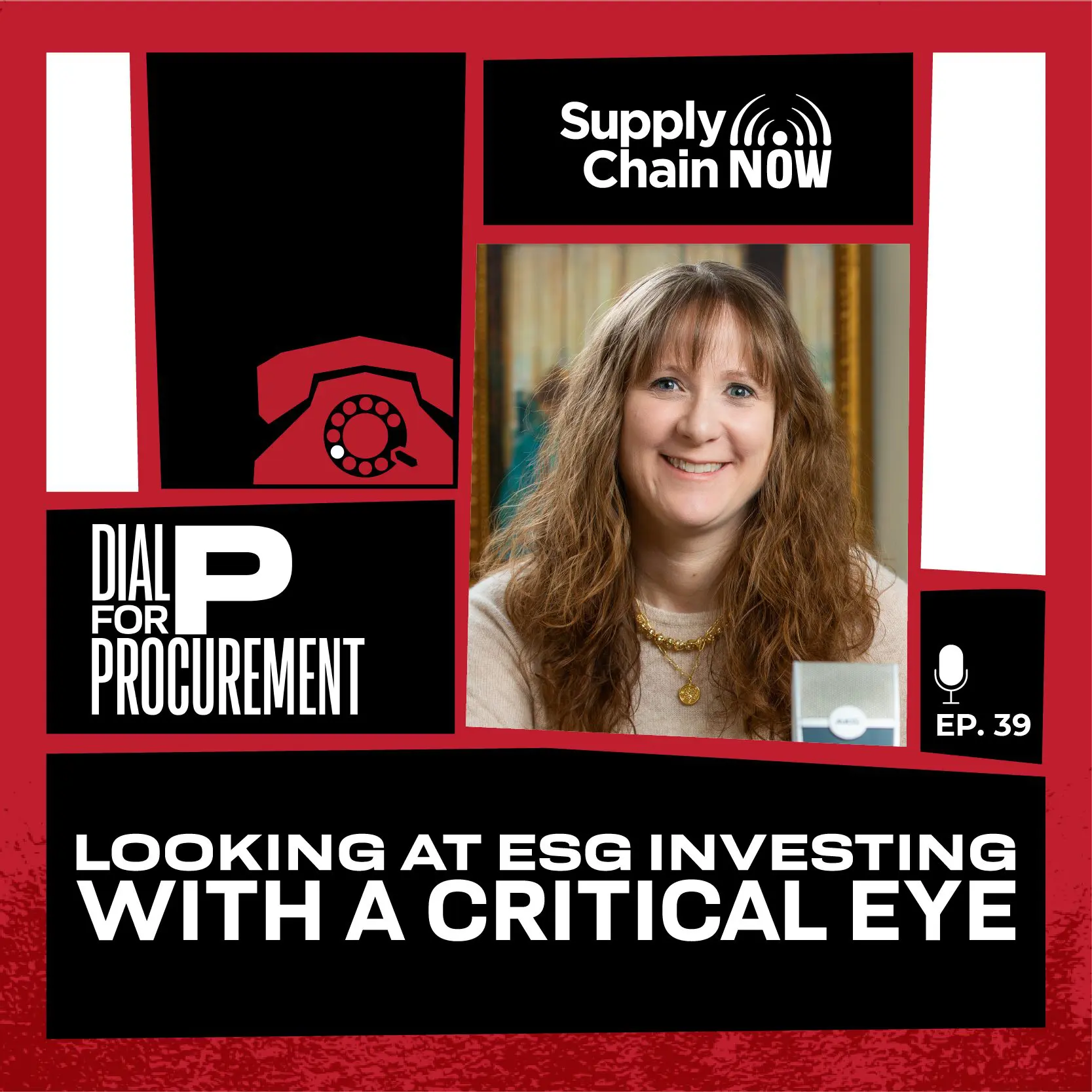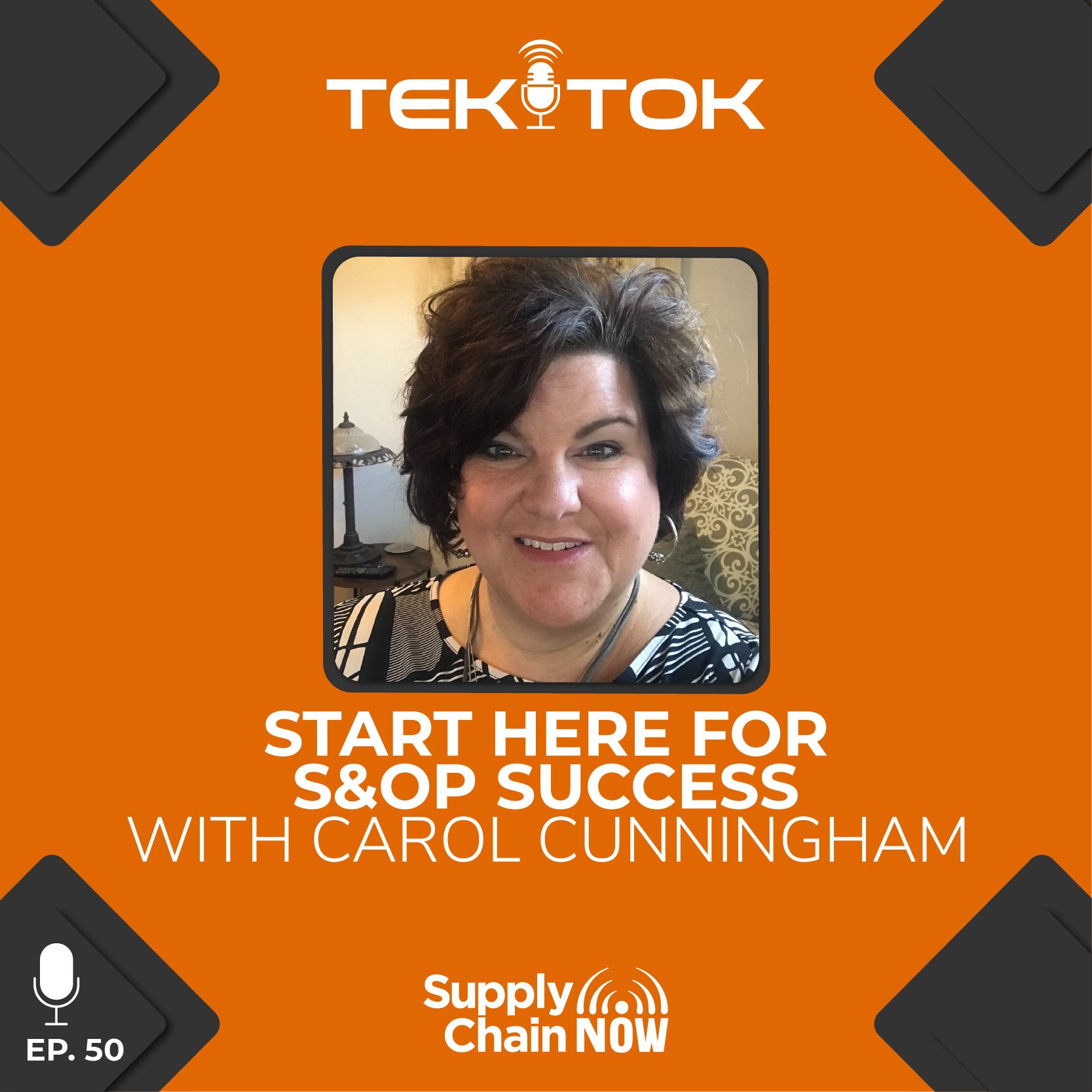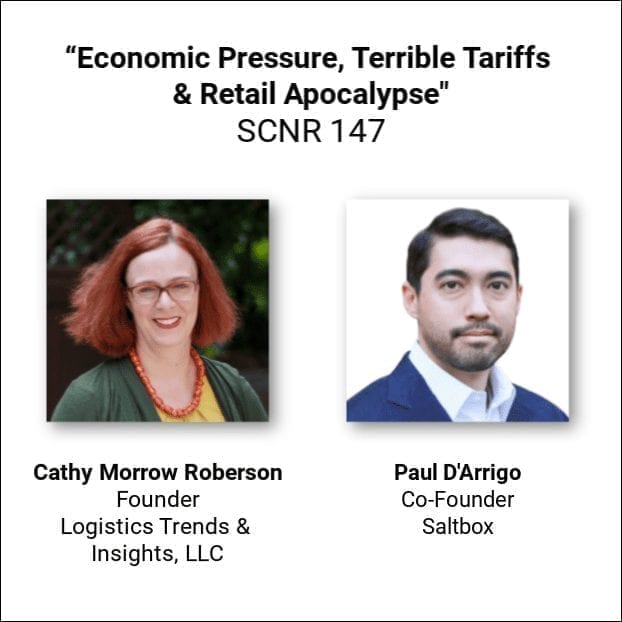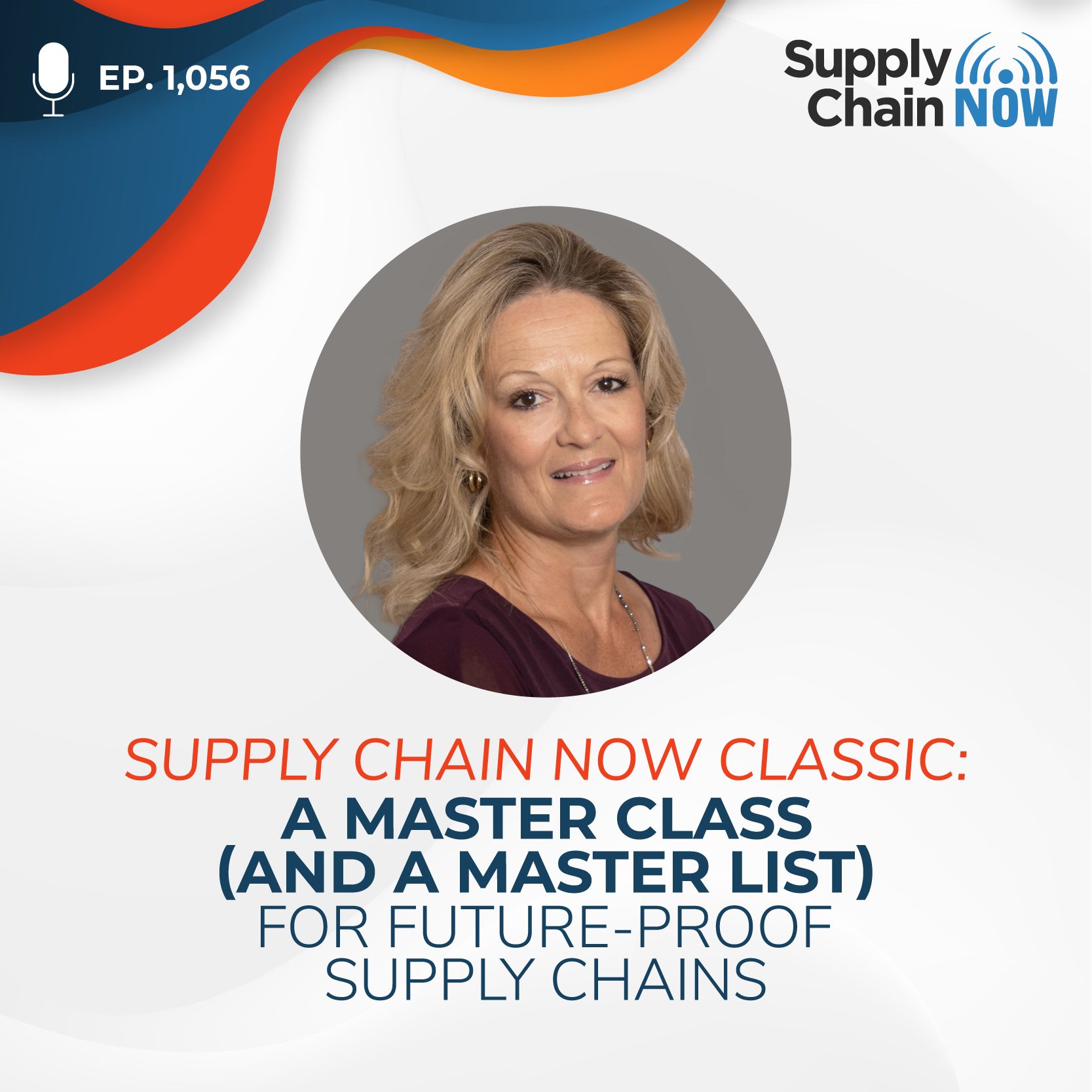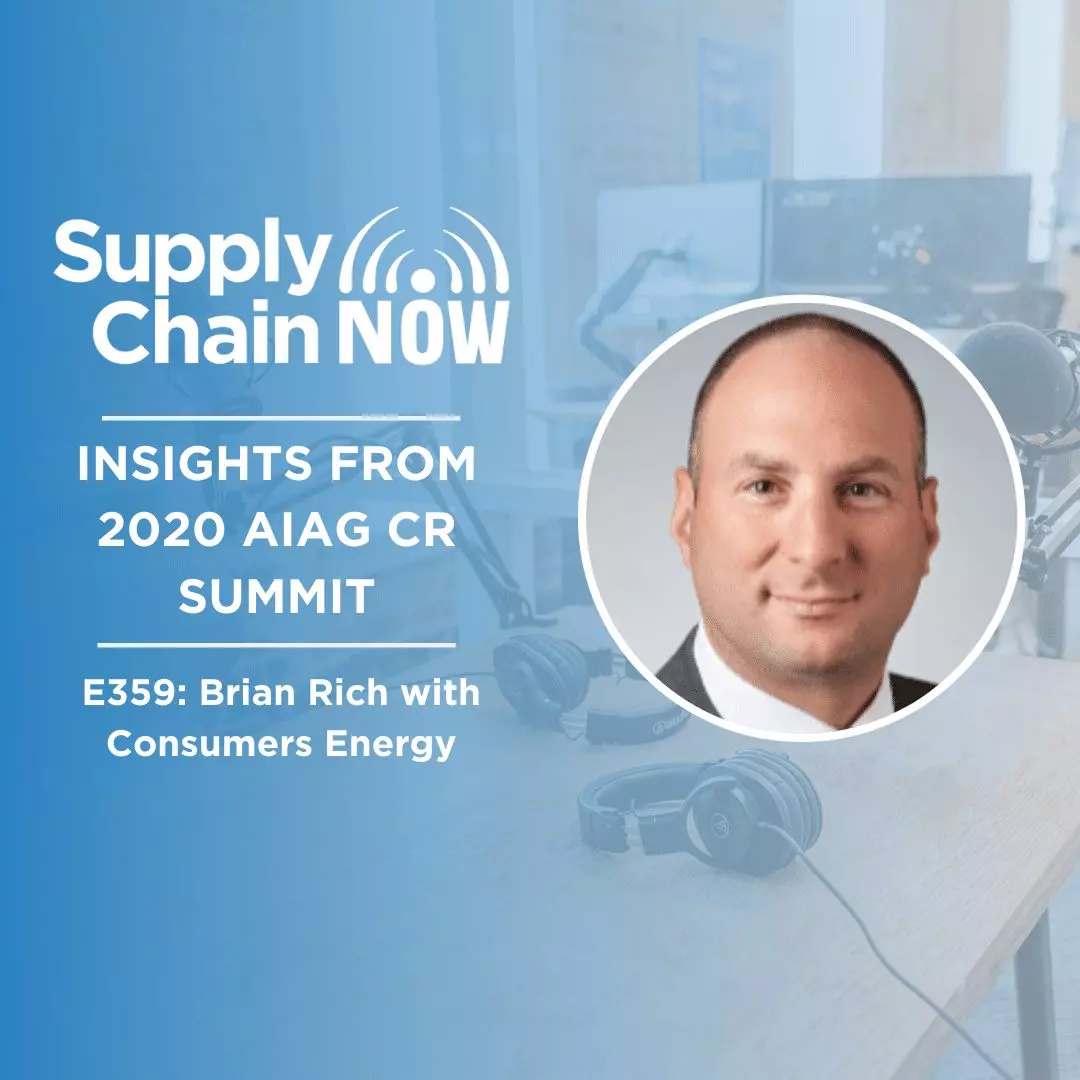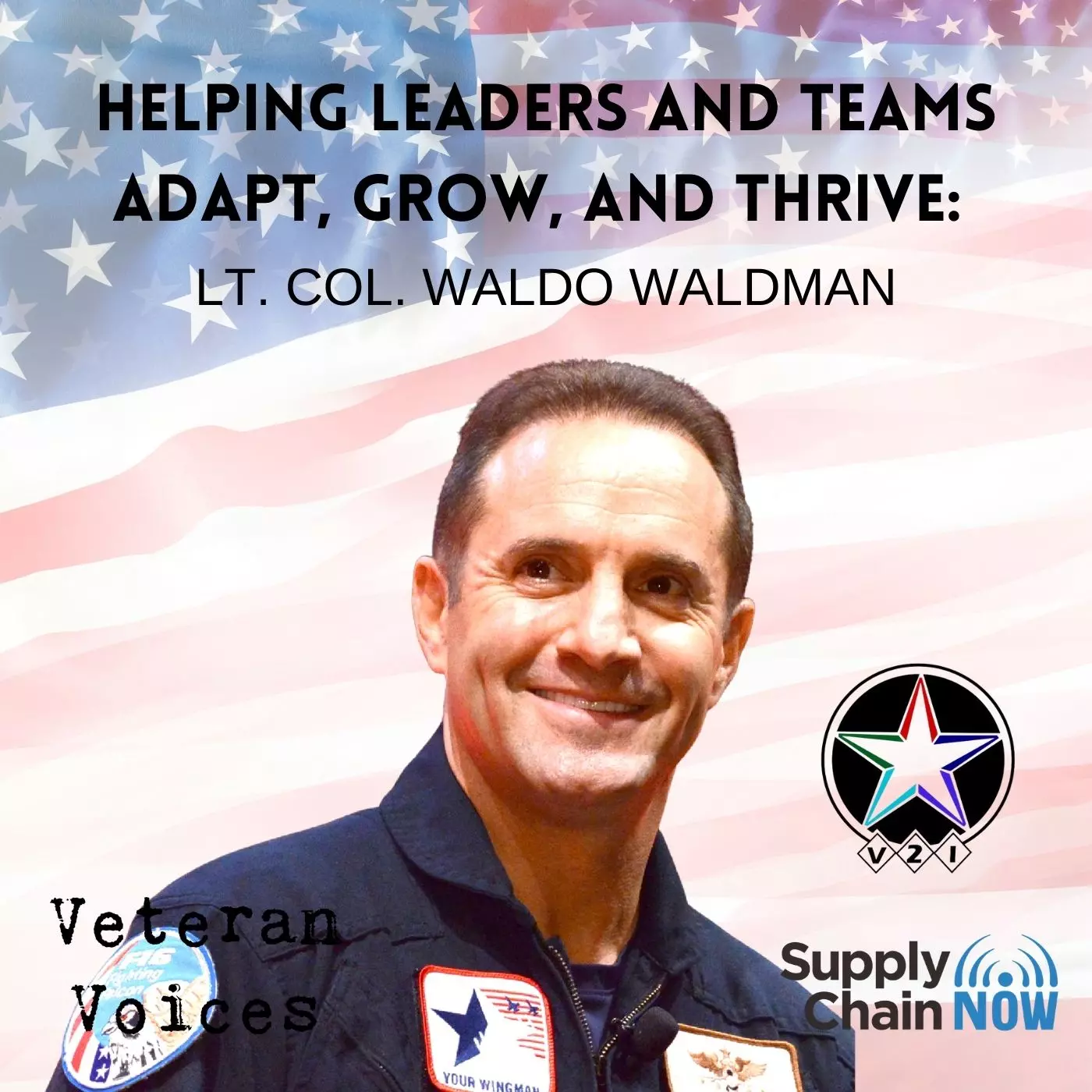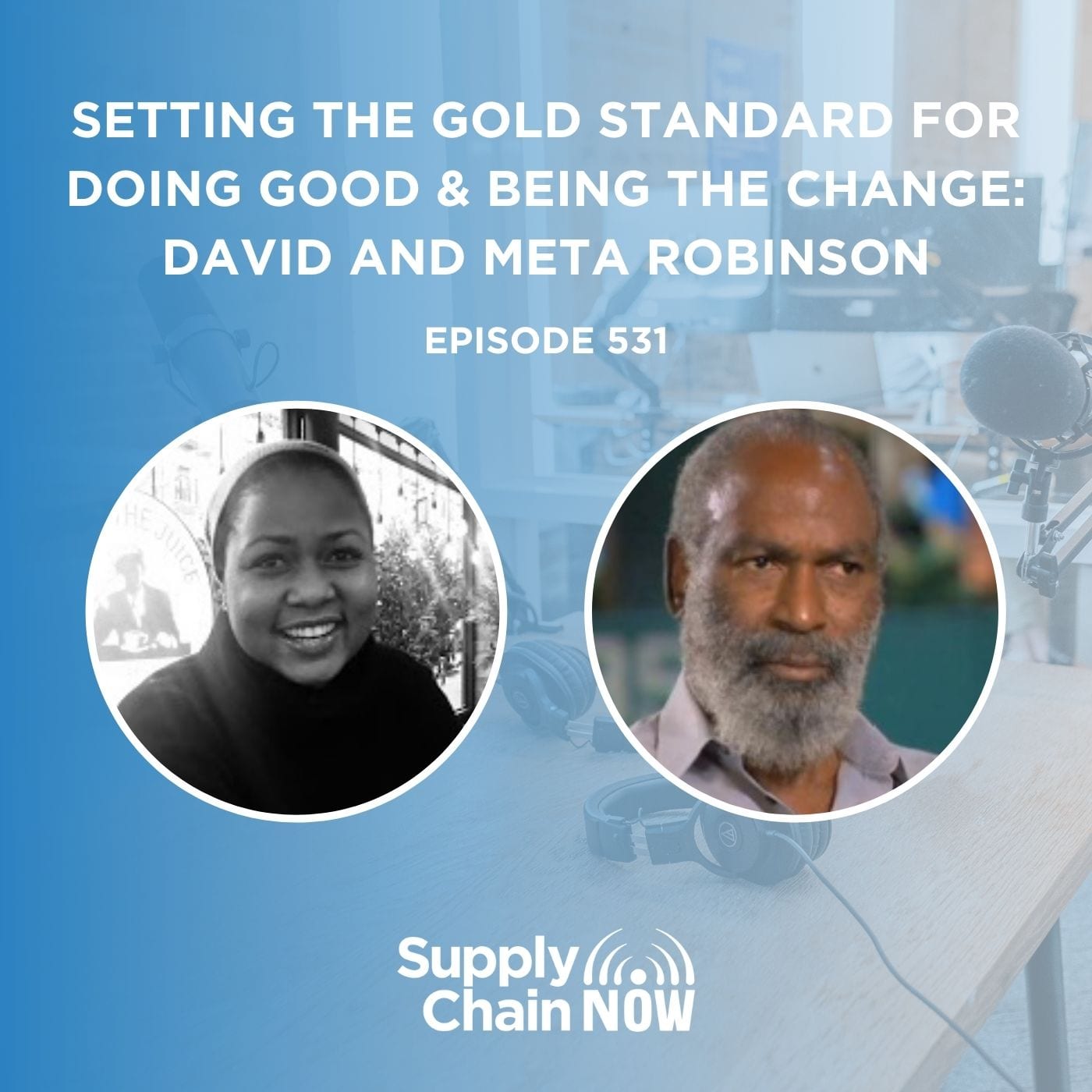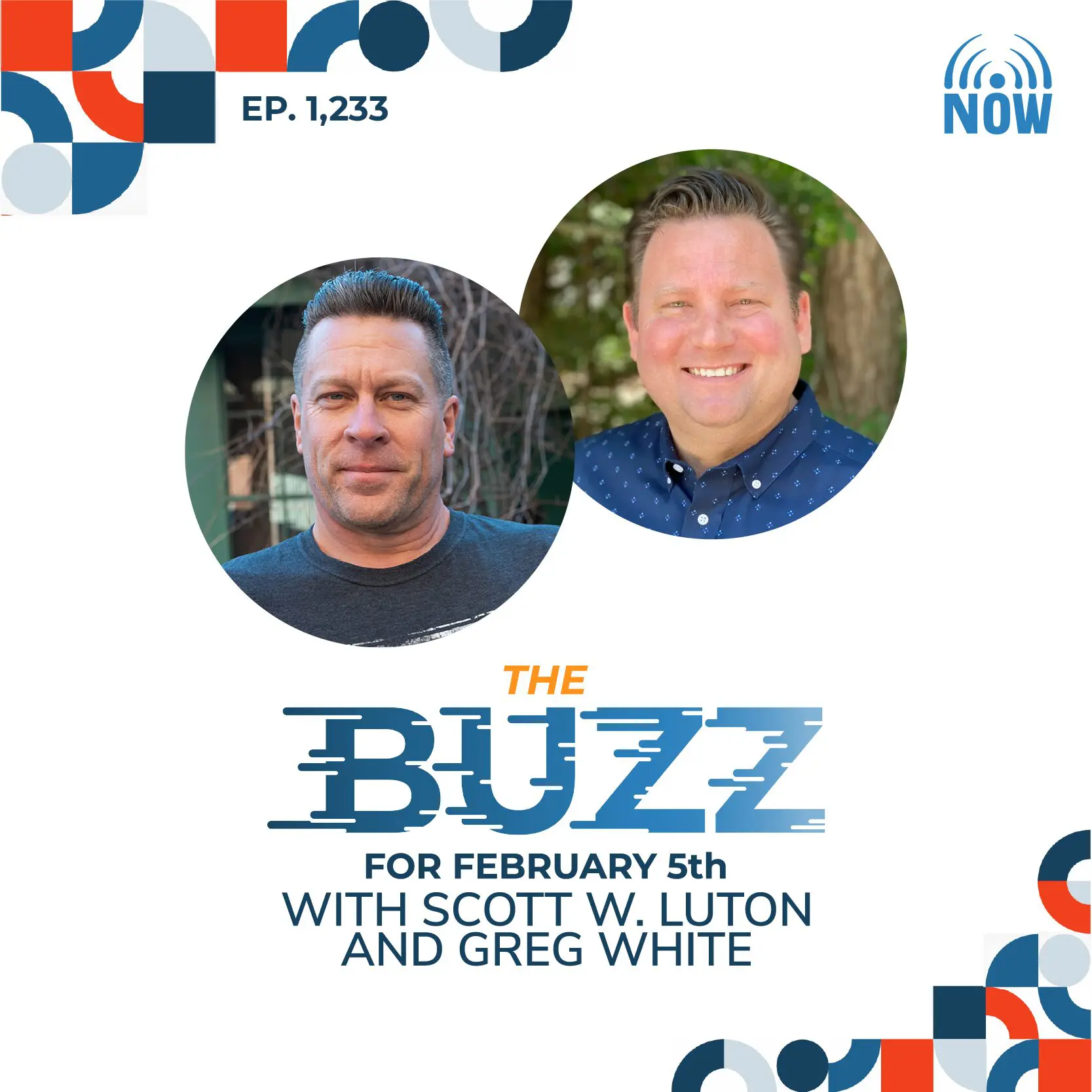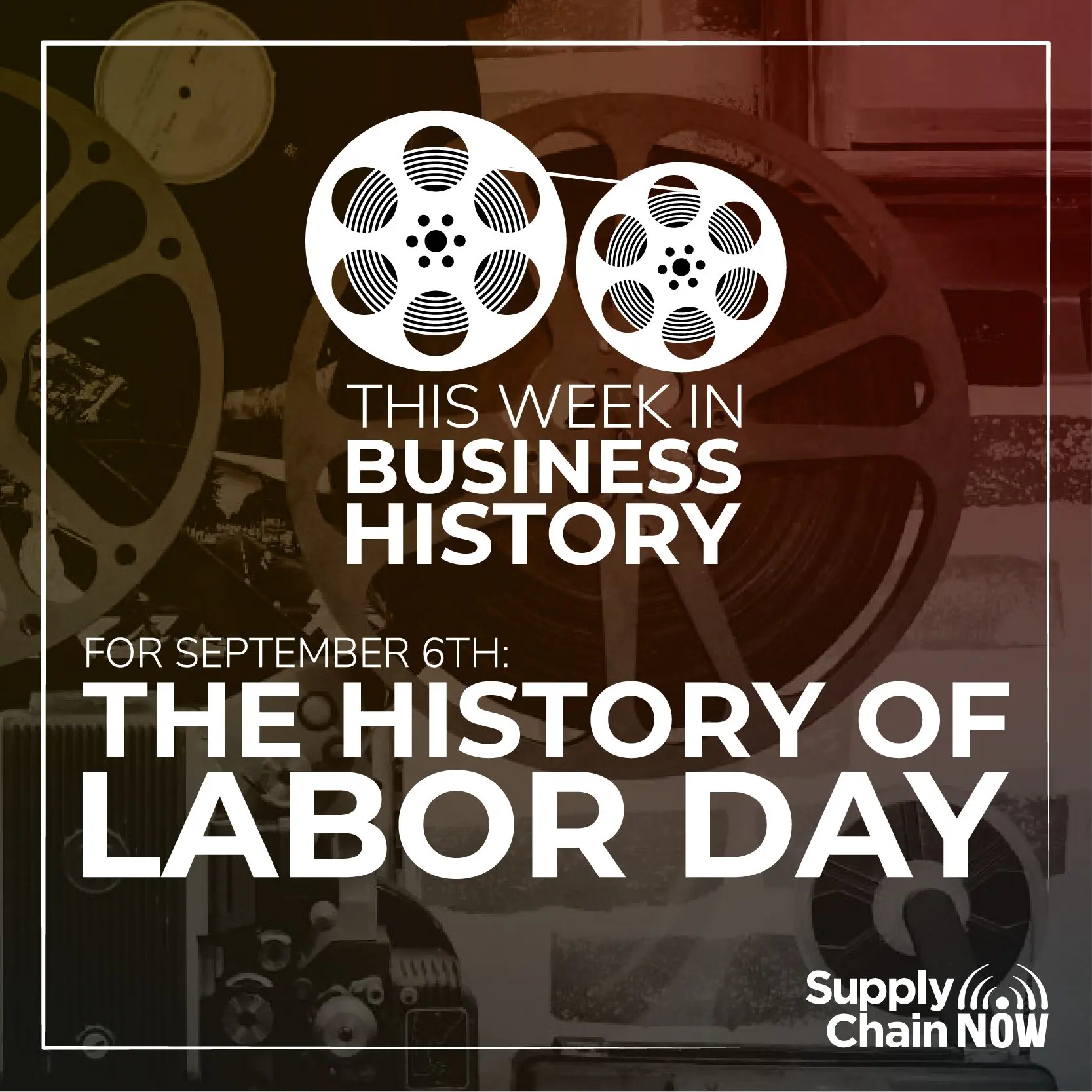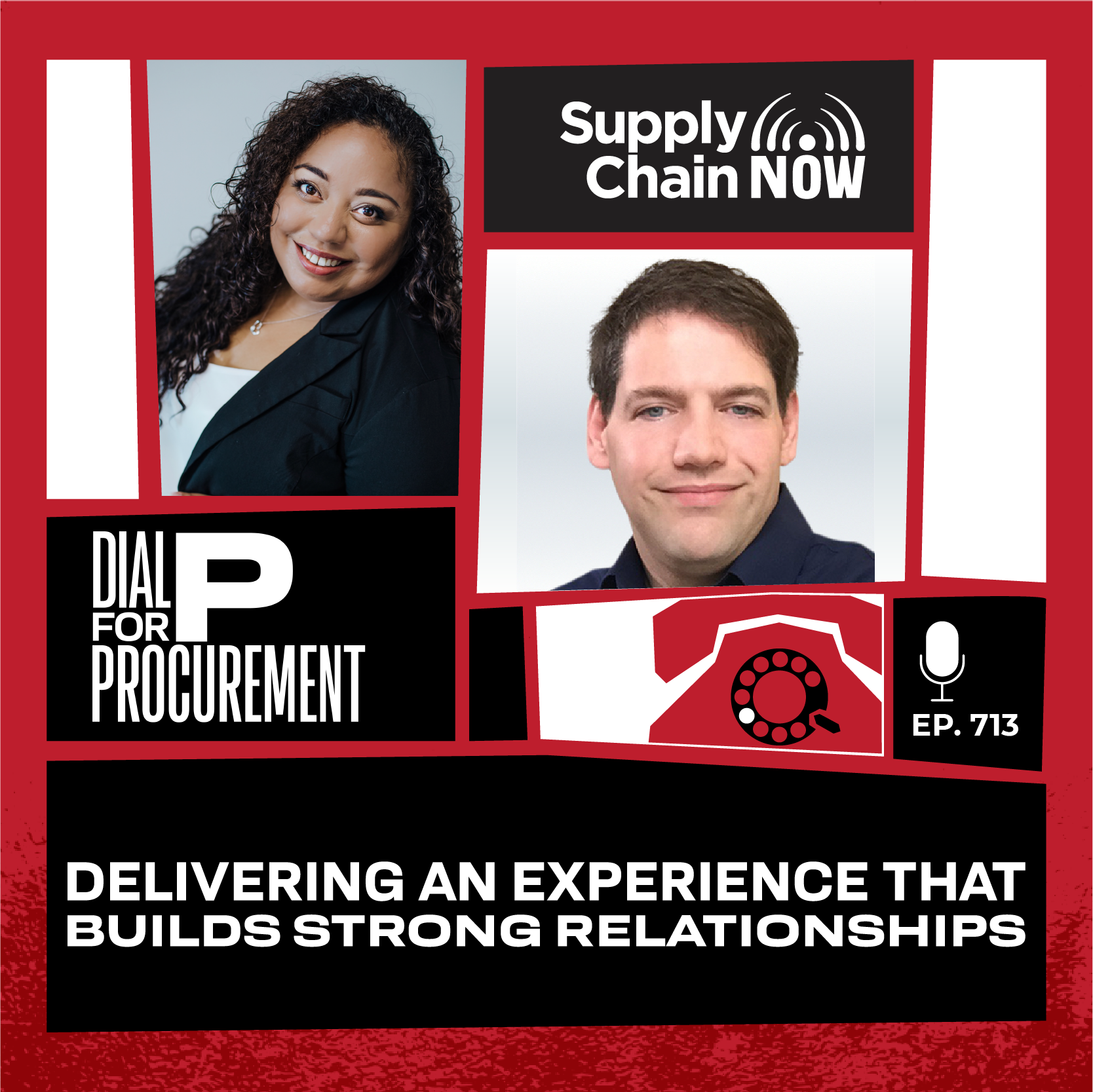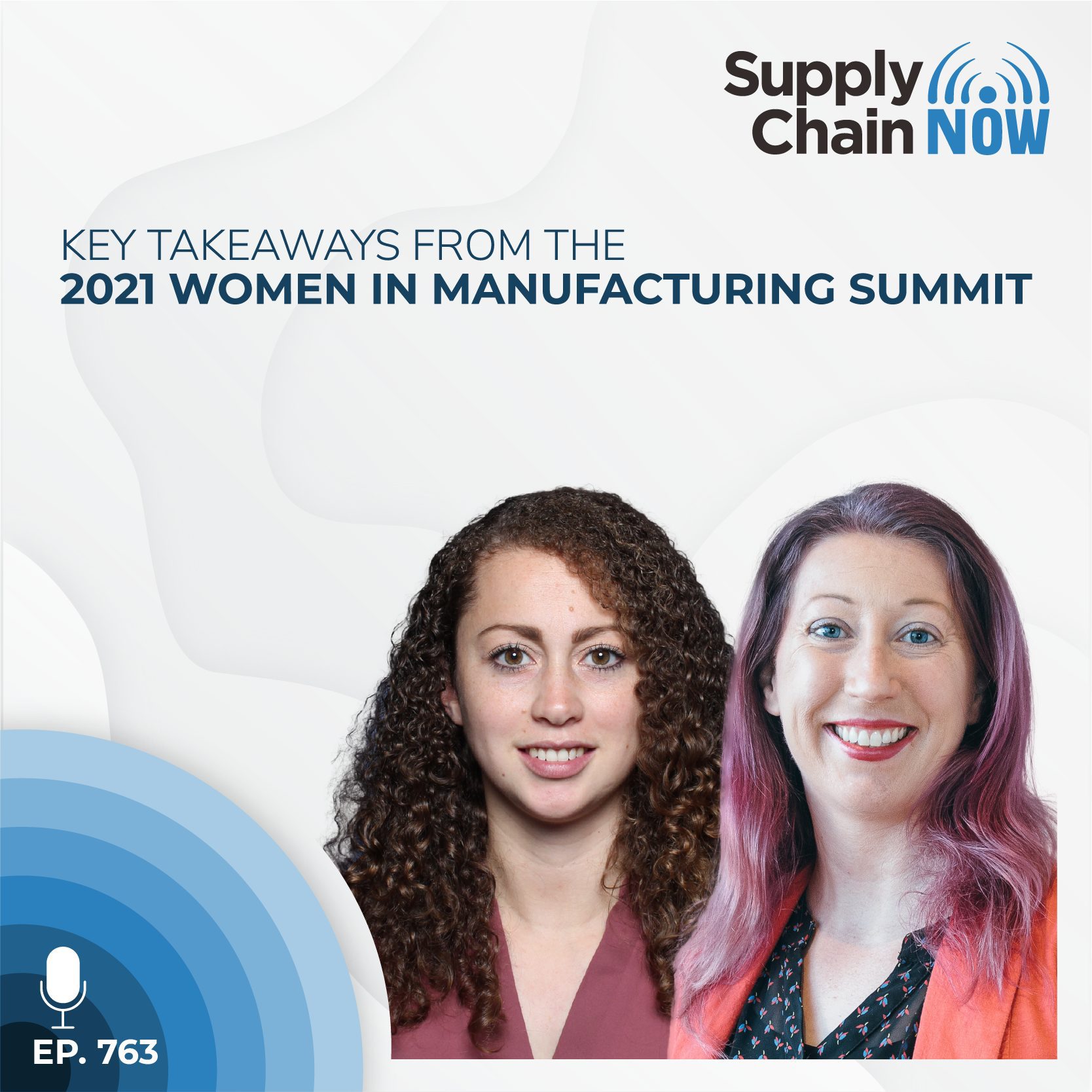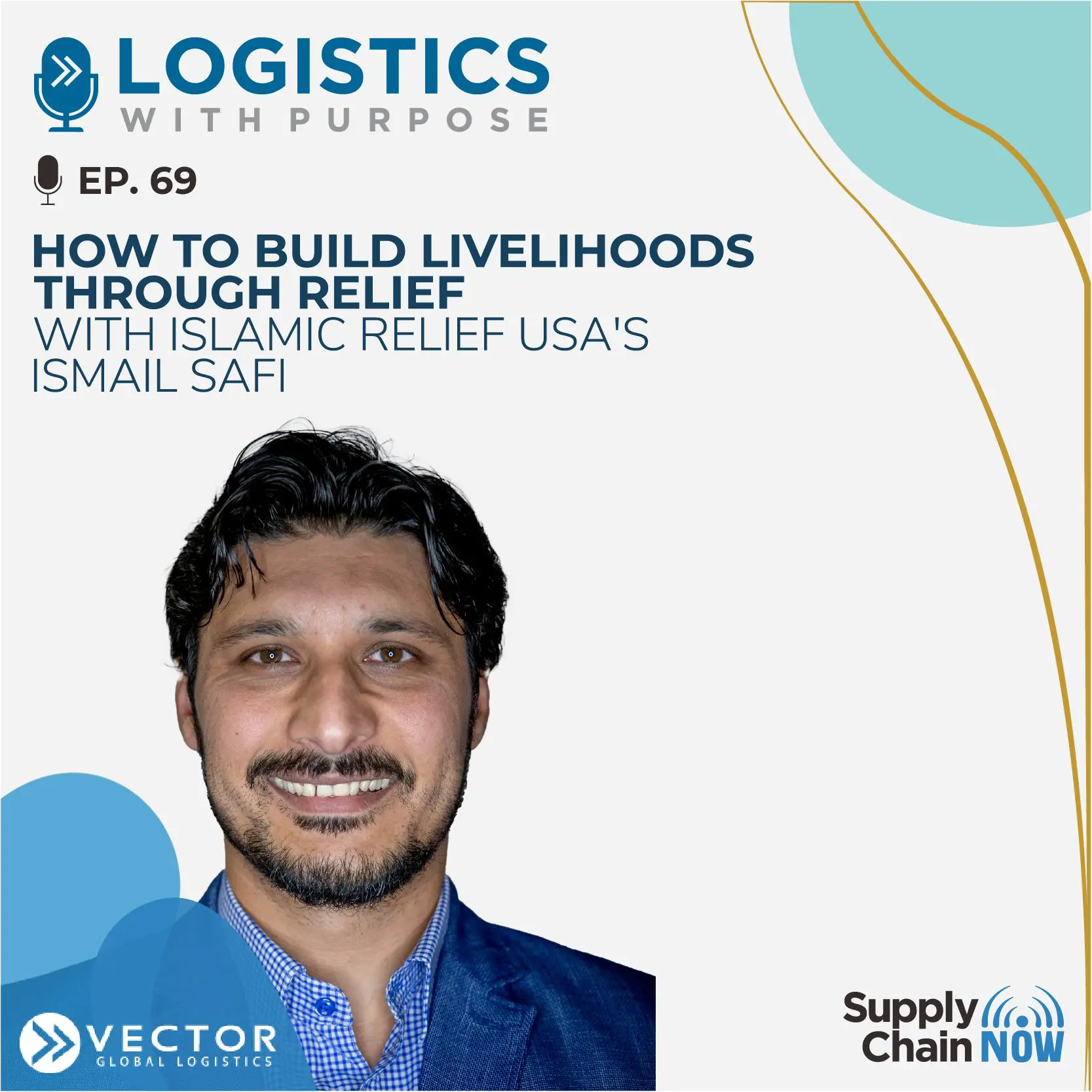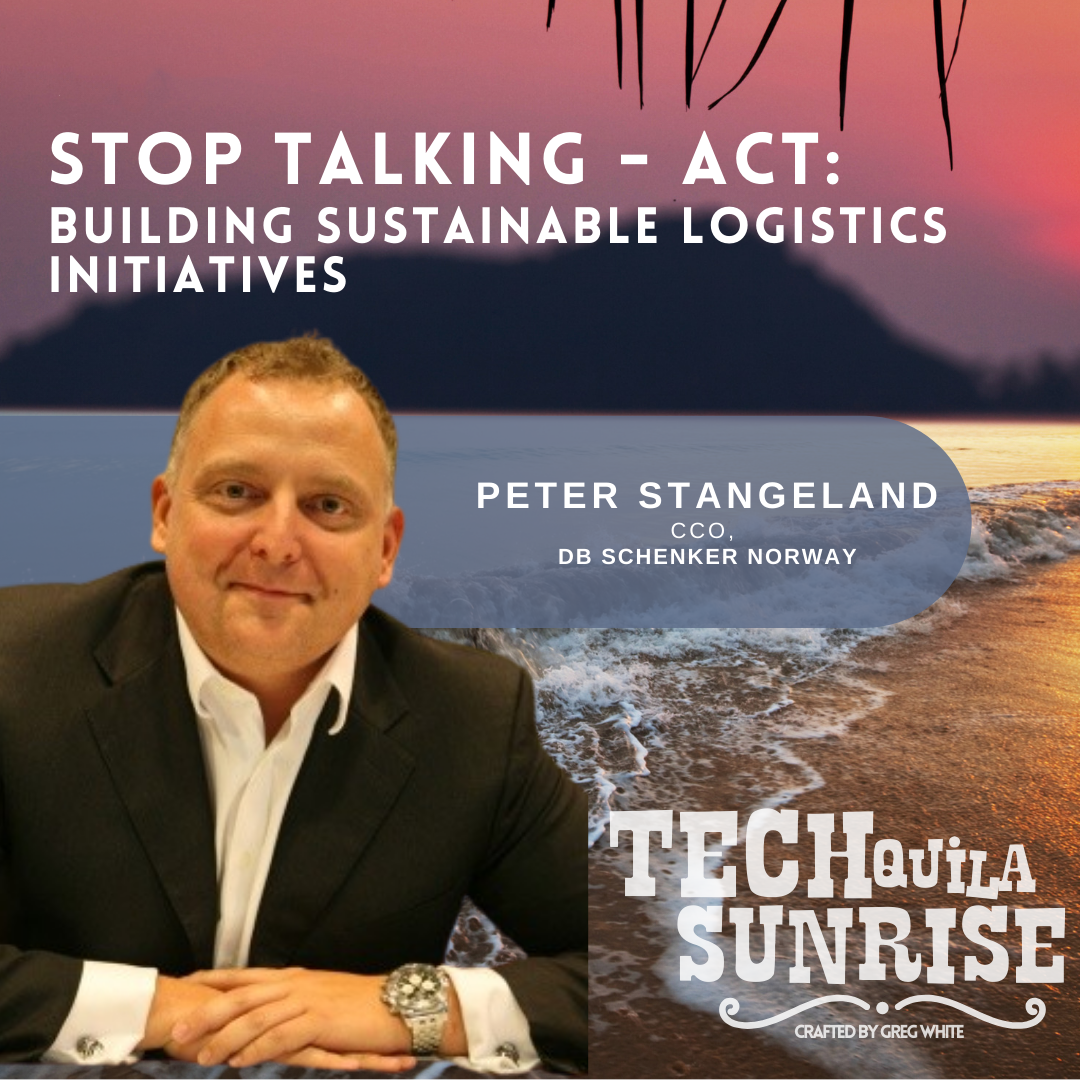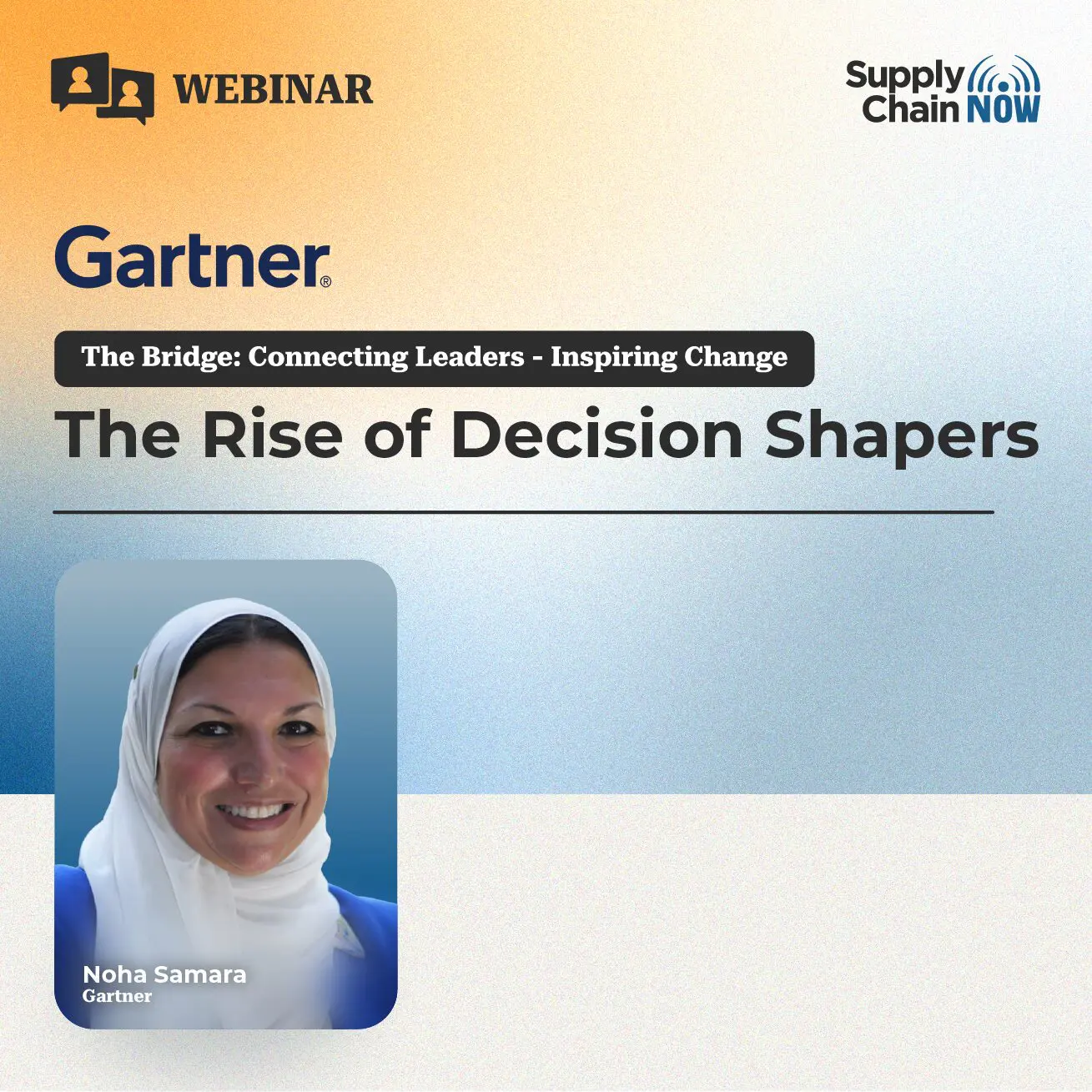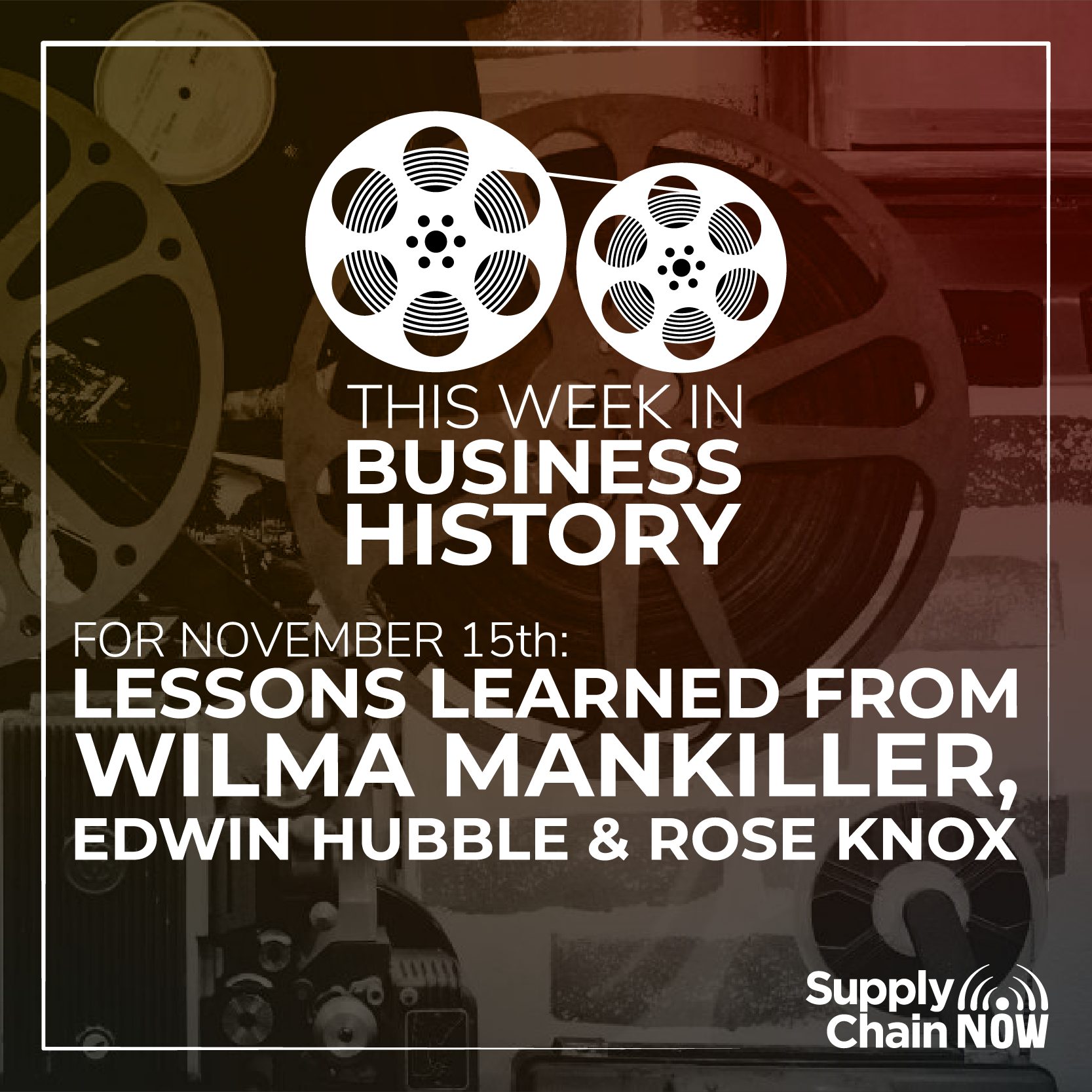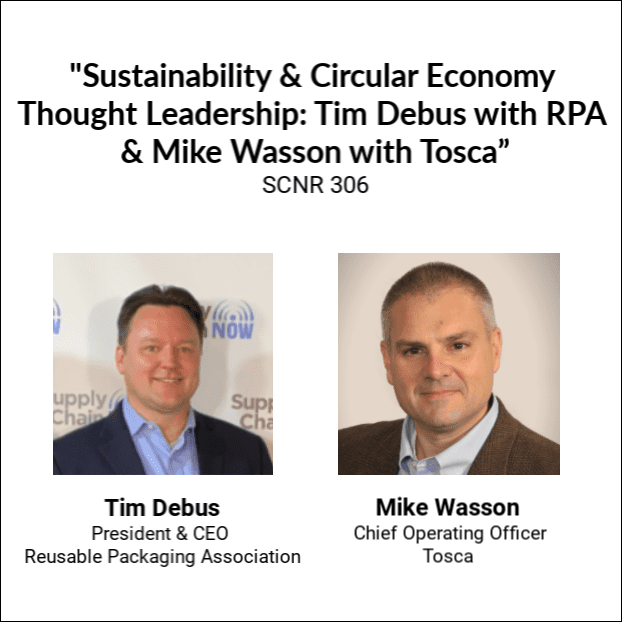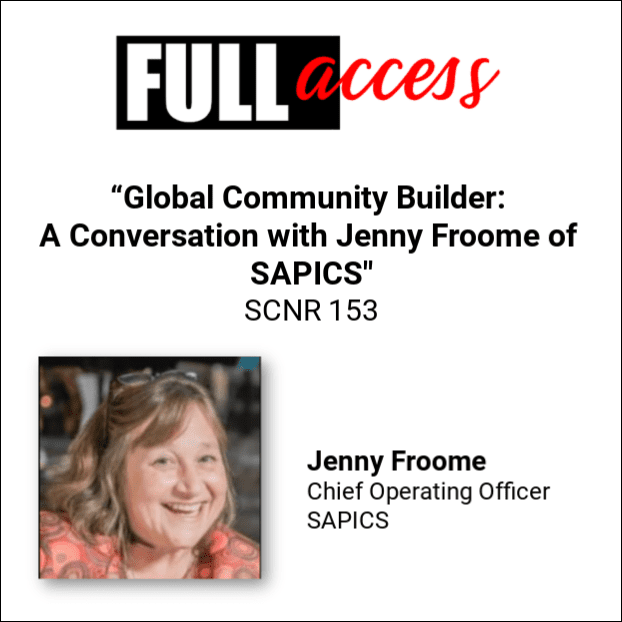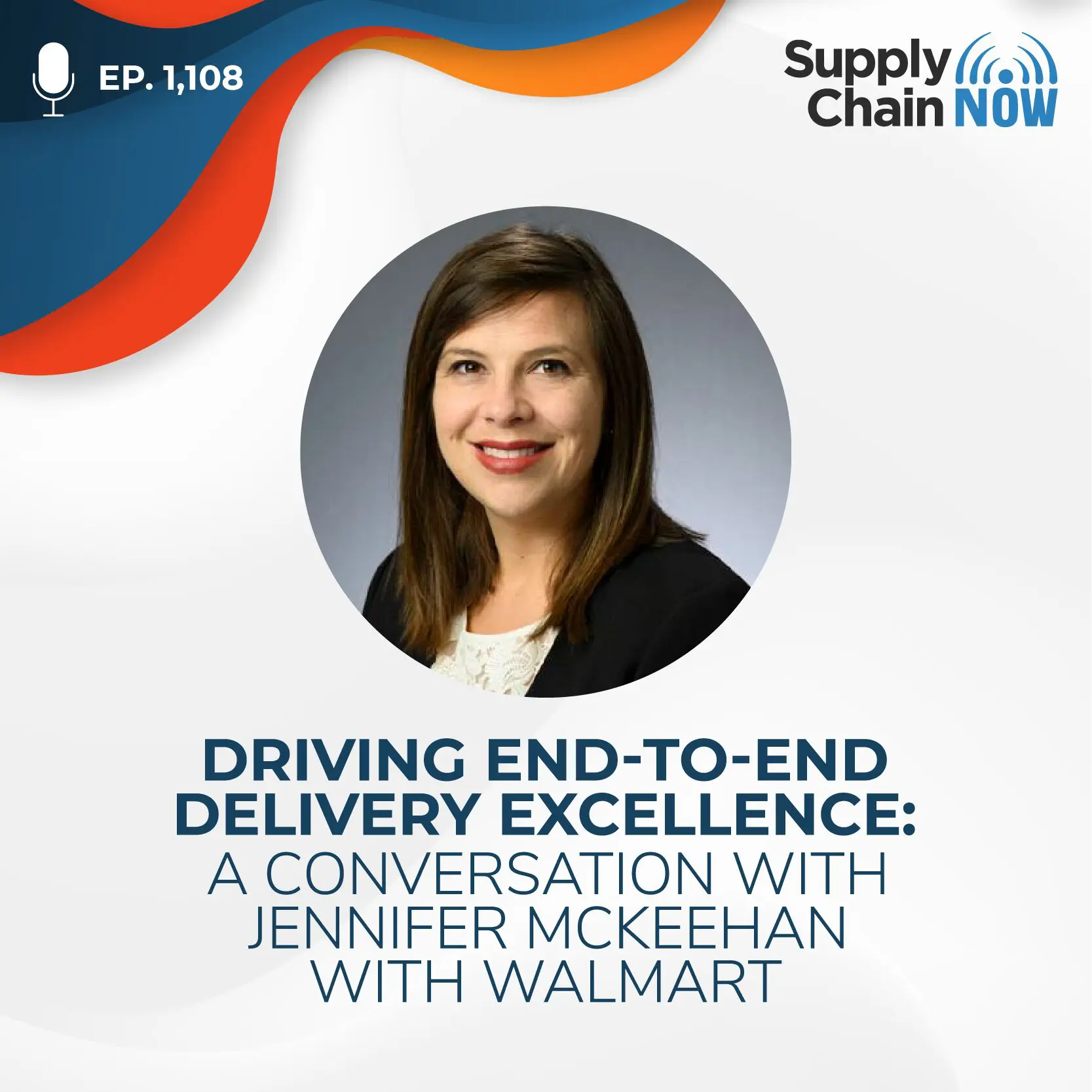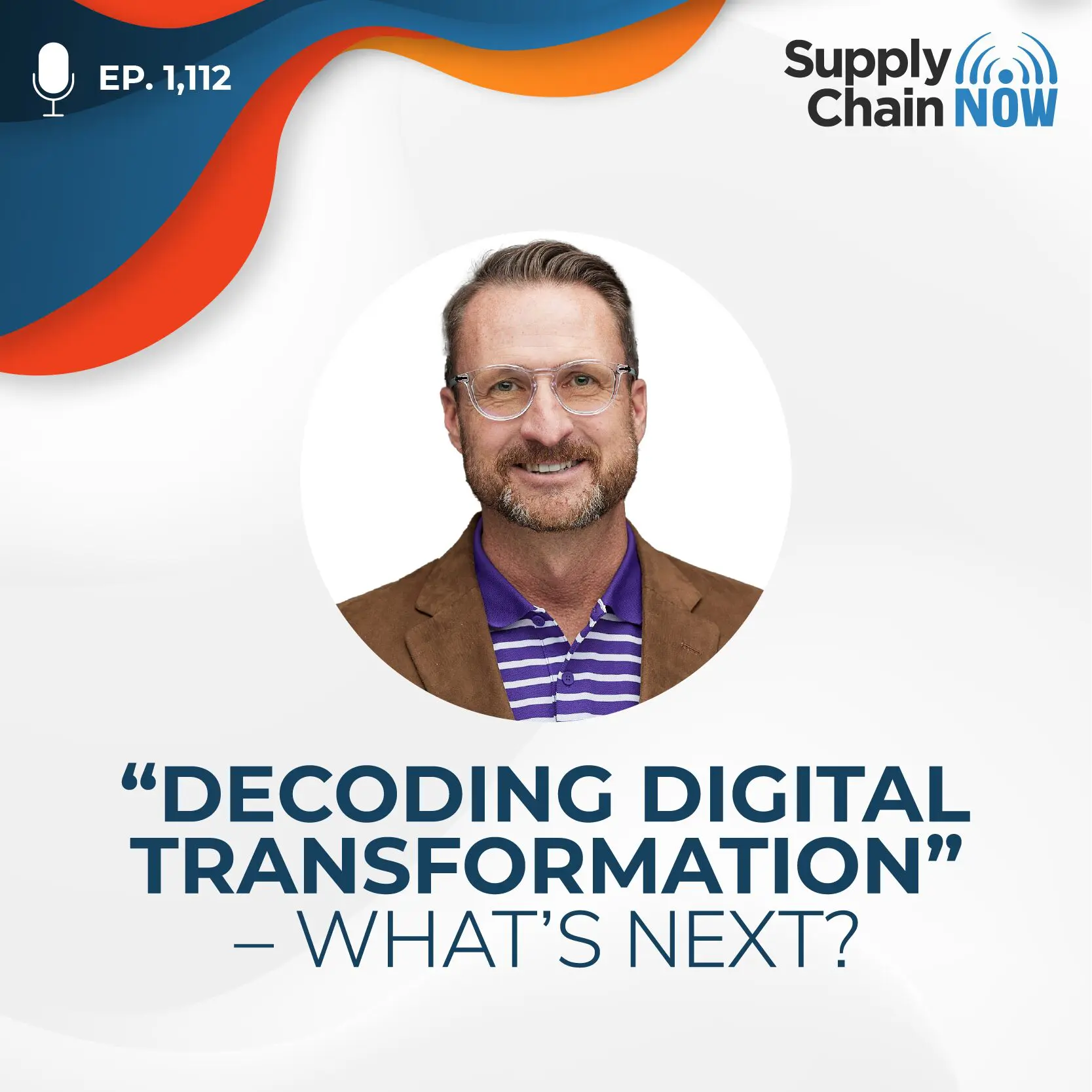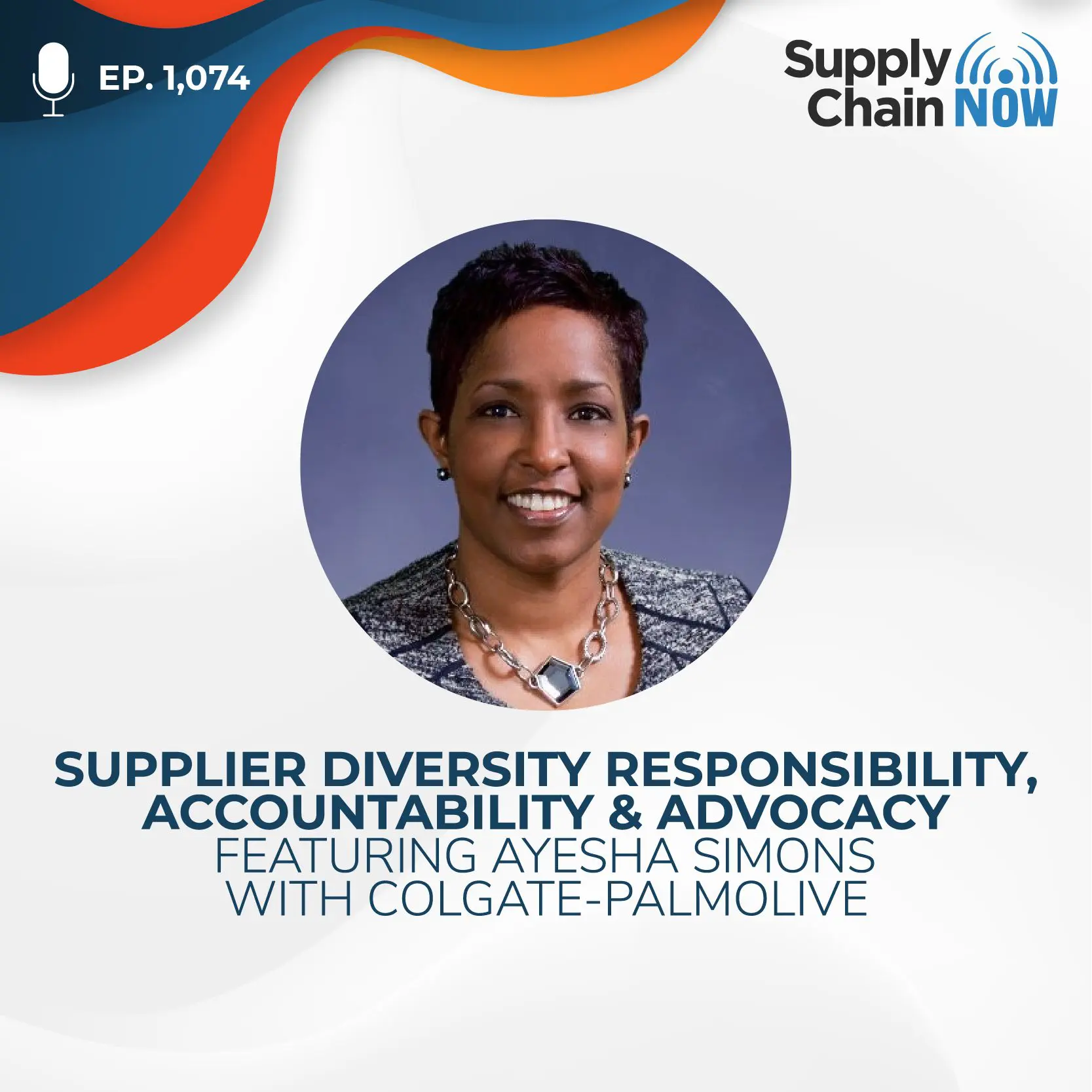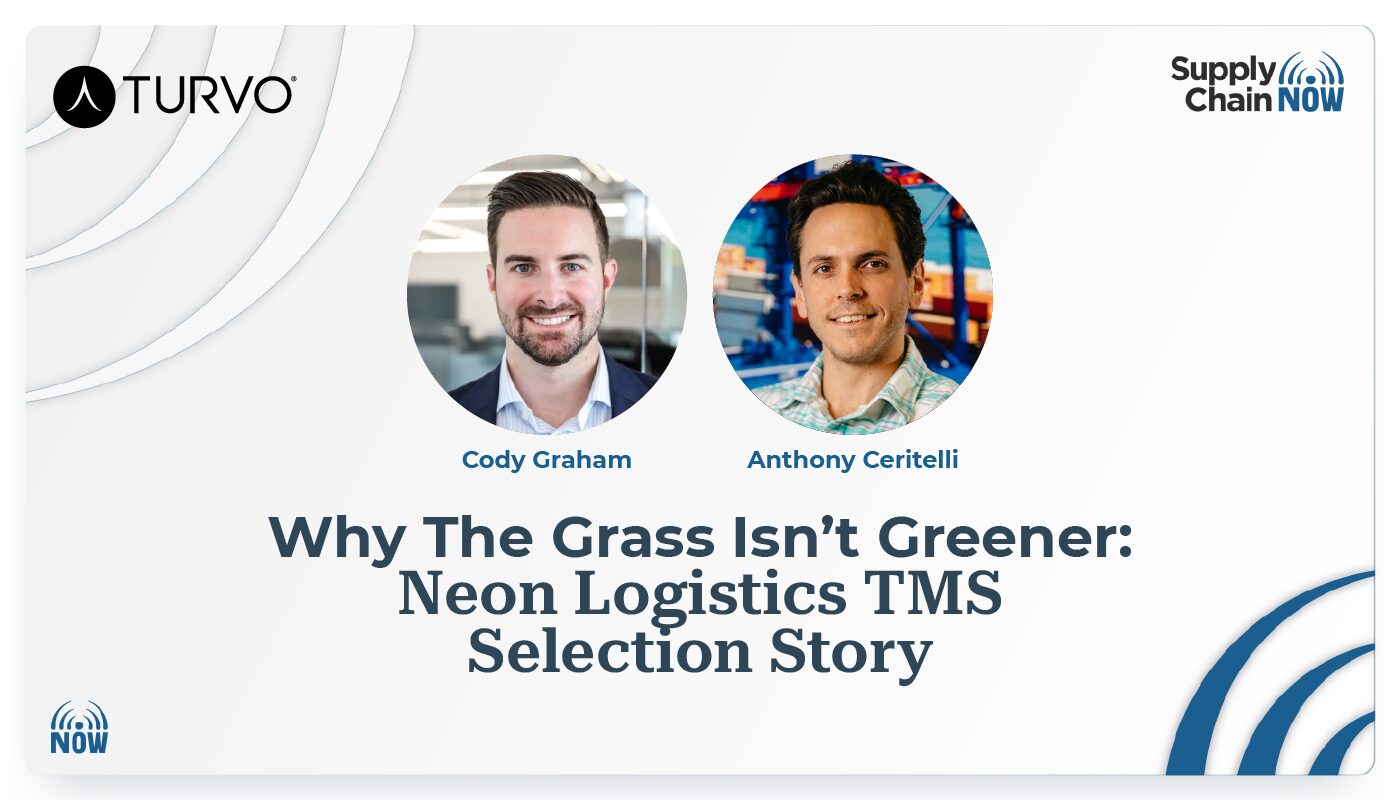
At Turvo, we have such a focus on customer success being a full lifecycle part of what you get when you work with Turvo, because it doesn't just end when you take everything out of the box.
-Anthony Ceritelli
Episode Summary
Selecting the right Transportation Management System (TMS) solution can be crucial for businesses. Finding a solution with the right balance of cost efficiency, visibility, good customer service, scalability, risk management, and analytics can be a difficult decision. Sometimes you get it right- and sometimes you get it wrong!
In a recent episode of Supply Chain Now, hosts Scott Luton and Mary Kate Love welcomed Cody Graham, founder and president of Neon Logistics, and Anthony Ceritelli, senior director of Customer Success with Turvo, and discussed their unique business relationship. Neon Logistics initially partnered with Turvo for a TMS implementation but later switched to a different tech platform. However, they found the new platform fell short of their needs and returned to Turvo. The switch to the new platform cost Neon Logistics around $1 million in total costs, including time, additional vendors, and lost revenue from customers.
Join us for this conversation, and learn from Graham’s unique experience. Find out more about how it’s not just about implementing a software solution; it’s about choosing a strategic tool and partner that aligns with the organization’s goals and values, and facilitates continuous improvement in the supply chain.
Episode Transcript
Intro/Outro (00:03):
Welcome to Supply Chain. Now the voice of global supply chain supply chain now focuses on the best in the business for our worldwide audience, the people, the technologies, the best practices, and today’s critical issues, the challenges and opportunities. Stay tuned to hear from Those Making Global Business happen right here on supply chain now.
Scott Luton (00:32):
Hey, good morning, good afternoon, good evening, wherever you may be. Scott Luton and Mary Kate, love with you here on Supply Chain. Now welcome to today’s live stream, Mary Kate. How you doing today?
Mary Kate Love (00:43):
Doing great. Doing great. Great to be back here in the co-host seat.
Scott Luton (00:49):
Great to have you back, and especially for this conversation, Mary Kate. One of life’s universal truths is the grass ain’t always greener on the other side of the fence, right? And that applies in the world of supply chain technology as well. So today we’ve got a very unique conversation that features a story of a dynamic organization that left their TMS provider, right? Switched to an alternative tech platform, but later came back. So what did they learn? What did it cost? What should stay tuned to find out on the same bat channels? That series of questions seemed like great show teed up here today, right?
Mary Kate Love (01:29):
Yeah, we were just saying before we joined that I don’t think we’ve ever had a conversation on the show just like this. So really unique as an industry practitioner, these are the types of stories I want to hear, right? And get into the details, learn what works, what doesn’t work. So this one will be super fun.
Scott Luton (01:49):
Agreed. Agreed. And folks, a couple of two final reminders before we get started here today. First off, hey, let us know what you think. Share your comments about this live discussion like Kendall did here. Hello from Dallas via LinkedIn. Kendall Scott says, great to have you here, Kendall. Let us know so when you chime in like Kendall did, let us know where you’re from and let us know what you think of the conversation weigh in. And secondly, if you enjoy today’s show, be sure to share it with a friend or your network. They’ll be glad you did. Okay, Mary Kate, you ready to bring in our two rock and roll stars here today?
Mary Kate Love (02:23):
Yep. Let’s bring ’em in.
Scott Luton (02:25):
Let’s get to work. Welcome in. Our featured guest up. First Cody Graham, founder and president at Dion Logistics, and backed by proper demand. Anthony Elli, senior director of Customer Success with Turvo. Hey. Hey Anthony, welcome back. How you doing?
Anthony Ceritelli (02:42):
I’m great. Thanks for having me back. How are you?
Scott Luton (02:44):
Wonderful, wonderful, wonderful. And you’re bringing any friend of Anthony and Sarah Tele is Mary Kate is a friend of ours, Cody Graham, how you doing? Looking like a million bucks. How you doing Cody?
Cody Graham (02:53):
Doing great. Doing great. Happy to be here and share our story.
Scott Luton (02:56):
Great to see you, Mary Kate. We’ve enjoyed these pre-show conversations. That one.
Mary Kate Love (03:01):
Yeah. Yeah. Again, really excited for this one.
Scott Luton (03:05):
A lot of folks are, we got Aaron. Let’s see, Aaron, let know, I’m trying to decipher.
Mary Kate Love (03:10):
Yeah, I’m trying to think.
Anthony Ceritelli (03:13):
Df dub,
Scott Luton (03:14):
That’s, oh, Dallas Fort Worth. Yes. Okay. Aaron, I’m with you. I’m with you. Great to see you here via LinkedIn. Caroline from Houston, great to see you here as well. Ilia from Dallas as well. Great to see you. And finally, Maria from Madrid, Spain via LinkedIn. Great to see you. Welcome everybody. We’ve got a great story teed up. So let’s start with a fun warmup question, Anthony, Cody and Mary Kate, because tis the season, the final four rather has been set in both the men’s and the women’s NCAA tournaments. And I want to ask each of y’all to pick your winner. And so just refresh your memory and folks out there from Aaron, Maria, Alia, Caroline, y’all let us know you’re who you’re picking to. So on the men’s side, you got Yukon Bama, NC State, and Purdue. On the women’s side you got South Carolina, NC State, Iowa, and Yukon. Cody, you’re the newcomer here at Supply Chain. Now give us your winners on both.
Cody Graham (04:11):
Yeah, I think on the women’s side, you got to go with Iowa. It’s too good of a story. And then on the men’s side, one of our guys here internally a big Tennessee fan, so I was able to take them down. I’m going to have to go with them to win it all.
Scott Luton (04:25):
Okay. Alright, Anthony, boldly pick your two winners
Anthony Ceritelli (04:30):
On the men’s side. I’m going to go Yukon just because I’m a realist and they’re beating everybody by like 150 points and I don’t see ’em losing, even though my boss is an Alabama fan and he’ll probably, oh boy. But on the women’s side, I’m going with Caitlyn Clark in Iowa. Just the story’s too good. She took about a hundred shots last night and I would’ve air balled all of ’em. But they’ve been fun to watch.
Scott Luton (04:53):
She made about 98 of the hundred tell you what, it was awesome to watch. Alright, Mary Kate, who’s your winners?
Mary Kate Love (05:00):
I’m going to keep it in the Midwest for both of my winners and I’m going to do Iowa for the Women’s. Obviously I’m aligned with these two here about just the Caitlyn Clark effect being super fun to watch. And then I’m going to pick Purdue just because I like a good Midwest winning for both leagues, right?
Scott Luton (05:17):
Okay. Hey, I’ll go with that. Great selections for all three of y’all. I’m going to go Purdue on the men’s side, much like you, Mary Kate, and I’m going to be the oddball. I’m going to go with South Carolina on the women’s side. They have building an incredible story and they’re all talented, right? But man, the winning culture at South Carolina is what brings home trophies oftentimes. So we’ll see. I know that’s the favorite folks, but safe pick, I guess we’ll see. All right, Mary Kate, Cody, Anthony, looking forward to a great conversation. Really quick, Amanda is picking, let’s see, Yukon for men and Iowa for the women. So Iowa is just about consensus around here. Alright, we’ve got a great story to get into. Let’s offer up some context first. Cody Anthony, Mary Kate. So Cody, welcome here. Tell us about Neon Logistics and the cool things you’re doing there.
Cody Graham (06:06):
Yeah, absolutely. We’ve been around for about seven years. We’re based out of Scottsdale, Arizona. We’re a typical non-asset, third party logistics company. What’s different about us is we really view ourselves as a communication company. We view communication as our big differentiator. So we’re huge on transparency and honesty.
Scott Luton (06:25):
I love companies that not only make it about communication, especially in supply chain, but they embrace that and they communicate that that’s who they are. Mary Kate as an organization and as a team because communication is invaluable when it comes to global supply chain and business. Your thoughts, Mary Kate?
Mary Kate Love (06:43):
Yeah, I can see why in logistics especially right communication, being number one and building that trust with your customers is really relied on the communication you have. So I love that as being your motto.
Scott Luton (06:55):
Yes. And I’m so glad you went to trust because communication is certainly one of those undeniable trust builders out in the industry. Anthony, welcome back. We’ve enjoyed a couple of appearances here. I enjoyed our NFL football chat last time and including all the business chat we had as well. But tell us for the three people out there that may not know, tell us about Turvo.
Anthony Ceritelli (07:16):
Sure. So Turvo is the logistics and supply chain collaboration platform, bringing brokers, shippers, carriers, various trading partners in the industry together to deliver actionable visibility across the full supply ecosystem. All the way from appointment scheduling to warehouse and order inventory management and shipment execution. Shipment execution is where our PMS lives and I’m really excited to dig into that today. You guys know that I love talking about the customer story and we’ve got a good one here today.
Scott Luton (07:50):
We sure do. And Mary Kate, you and I both were talking about the transparency that having a story like this requires so big thanks to Anthony and the Turvo team for being willing to go there because just like communication, we’re talking about transparency also fuels trust and trust is how we move mountains for sure. Alright, so folks, let me recap this story you’re about to hear, right? So Neon Logistics, as we were talking on the front end, they partnered on A TMS implementation and deployment with Turvo a while back. And then just like we were talking about a second ago, the grass did look greener on the other side. So neon bolted to a competitor, but then Cody and the team saw the light just like our friends Brooks and Dun back in the day made their way back home to Turvo. And this journey is the heart of what we’re going to be talking about here today, offering up tons I promise of actionable takeaways for our audience. So with that as a backdrop, kind of the story in a nutshell, Cody, why didn’t you renew you and the team at Neon Logistics renew with Turvo initially and what made you switch to a different TMS?
Cody Graham (08:57):
Yeah, I mean, anybody that knows me knows that I have crazy high expectations of freight tech. I kind of had this, I guess dream that some TMS could potentially solve all of our problems. I got caught up in that dream, even though Ryan Schreiber at Metaphor tried to tell me maybe TMS changed before we switched from Turvo wasn’t necessarily what we needed. So just like we said, the title of the thing Grass was always greener and so, and really focused on the back office pieces with what I do compared to the front office of what most of our team does.
Scott Luton (09:37):
So Anthony, as you heard Cody talk about that, of some of the factors that led to the initial decision to leave the Turvo family and put a couple toes in on the other side of the fence, what comes to your mind?
Anthony Ceritelli (09:51):
Well, I’ve been with Turvo now for almost four years, and I’ve been working with Cody since the day that I started and I’m just a customer guy to my core. And the days just the reality of where you’re at in your role, you got to have tough conversations sometimes, but these are the worst days in your life when you’re a customer guys, you get that gut punch from one of your favorite customers saying, Hey, I’m going a different direction. But I knew that I needed to stay close to Cody because I know where the right TMS, the company’s growing. You have so many pieces in place, but I’m like, why are you leaving me now? So we stayed close and we’ll talk some more about the specifics, but I just felt like we had the right system for ’em. We just weren’t clicking yet.
Scott Luton (10:40):
Mary Kate, I bet every single person watching or listening to this conversation has had one of those gut punch days. And I’ll tell you from my experience, whether from some of the big Fortune 500 companies I’ve worked with or in startup world, those days are not that they all stink, but feedback is a blessing and it gives us an opportunity to really get real and get better. Mary Kate, your thoughts here on the gut punch and what Anthony and Cody have shared already?
Mary Kate Love (11:17):
Well, I just love what Anthony highlighted about staying close to Cody because when you create these relationships, even if there is an event like this or you take the gut punch, it doesn’t ruin the relationship if you have solid ground prior to it. So that is super important to keep that relationship those conversations up, because you never know what’s going to happen, what new opportunity will come down the line. And obviously that ended up working out here, right?
Scott Luton (11:45):
Yes, yes. And that’s a great call out. The relationship, right? Decisions got to be made and sometimes they don’t always break in your favor, even though you might love the people that the business doesn’t go to. But the power of the relationship here, Anthony, and how being the customer leader that you are, you never gave up, you kept building that relationship. You knew maybe around the corner the time would come again. And that’s what we’re going to be talking about in a second. Cody, you’re nodding your head a lot. My hunch is, as much as you are a, how’d you put it, you have world-class demands for freight tech or supply chain tech, but I also believe, I bet you’re a big relationship believer as well, huh?
Cody Graham (12:27):
Oh yeah, absolutely. Anytime you’re a communication company, really a company in logistics, you have to be huge about relationships. So especially a company our size, so that’s a huge part of what we do and what we value. And yeah, it was great. That call that Anthony had with me, I haven’t shared this with him, but whenever I need that call, and this is right after we went live with the other team, I think the day we went live, he’s like, I don’t know if that’s the right move in terms of making a differentiation with your tech strategy. That always kind of stuck with me. I was like, man, he’s kind of right there. So I was always playing in the back of my mind.
Scott Luton (13:05):
Cody, I love it. Anthony’s going to be an advisor to the end and then some is kind of what I’m hearing there, right? I love it. I hope I’m saying this name right. How would you pronounce that Mary Kate? What’s that? Anthony?
Mary Kate Love (13:21):
I’m not sure. Julia.
Scott Luton (13:22):
Julia, okay. Apologies.
Mary Kate Love (13:25):
That’s a name.
Scott Luton (13:26):
I like that name. And as she says here, sometimes you have to roam to appreciate what’s at home. How about that word Smith? Thrilled to have Neon Logistics back. That reminds me of the B 50 twos song from way back in the nineties. Roam. Alright, so Cody Anthony, I got no shortage of Gen X references. Anthony, that’s
Anthony Ceritelli (13:48):
Two musical references thus
Cody Graham (13:50):
Fall.
Scott Luton (13:50):
I got a couple more coming. Cody, Anthony, and Mary Kate. All right, so let’s get into what happened. Where did the TMS that you went to, without naming names, of course, the teammates that you chose to go to, I understand in our pregame conversations it fell short of your needs, Cody, and that’s a high bar as we have established. Cody, tell us what that impact was and the impact it had both on your business and your customers.
Cody Graham (14:22):
Yeah, I mean as far as what happened, so the back office pieces that I was focused on really worked out great, but what we found out was the freight management functions caused a lot of service issues for us. Things that we hadn’t seen before that we were really caught off guard with. And a lot of that related around visibility and communication. So Turvo’s got a really unique ui. It’s got a really good instant messenger feature built into it. It’s got notifications that alerts you whenever anything happens or potentially might happen on your shipment, and it’s got tracking links to give visibility to our customers. And so we’ve got a lot of Gen Z employees, a lot of younger workforce, and we had grown more accustomed to those unique features than we had anticipated through the evaluation. So it caused a big impact on the business.
Scott Luton (15:16):
It really sounds like it. Your team couldn’t get stuff done nearly as easily as they could with Turvo is kind of one of the things I heard there, Cody. So the ease there was more friction in getting things done and then it sounded like just the bottom line returns also were impacted by the move.
Cody Graham (15:34):
Yeah, absolutely. I mean as far as impact, the transition just in general was a bigger lift than I ever anticipated in terms of time, resources from everybody on the exec team throughout the whole organization. It was very immense. We had a cultural impact because of it, because we switched to this different TMS and our people learned that they really loved Turvo after we switched to the new TMS. So that was the deal. And then through service issues comes lost business. And so I would say if I had to put a number on it all in all, the switch cost is probably a million dollars in total costs. I would definitely chalk it up as our biggest mistake of 2023 and Eat Crow, but we like to fail as fast as we possibly can, logistics and own our mistakes just like we do with our customers and everybody inside the organization. Yeah,
Scott Luton (16:29):
Okay. So Anthony, before I get you to weigh in on that, goodness gracious Mary Kate, picking out different layers of that impact that Cody just shared, what’s the biggest one in your mind?
Mary Kate Love (16:43):
Hard to pick one because there’s a few that I loved, but kind of back in the beginning when Cody was talking about some of the features that Turvo really provided them, it seemed like Turvo is really providing this seamless communication and that is extremely important to you all at Neon Logistics. And so maybe this exercise is bringing you back to your original values, which you love to see a partner almost recognize your values better than yourself. Sometimes when you have the right partners, they’re really able to do that for you. So I like to see that all kind of come back together, but I have to call out. I absolutely love that you’re talking about your biggest failure because in startup world, everyone always says fail fast and fail big, but no one really ever admits their failure. So this is a great conversation where we’re not just saying fail and fail fast. You’re actually sharing what you guys went through to do that. So I love that.
Scott Luton (17:40):
Excellent points there. Mary Kate and Anthony and Cody and Mary Kate. We’re going to talk more about the reunited component of the story here. Anthony, when you think about what Cody was sharing about how the alternative platform just didn’t work on the business side and that impact it had, I bet you hear these stories a lot, Anthony is my hunch.
Anthony Ceritelli (18:03):
We do, thankfully we don’t hear customers leaving Turvo all that often, but we do. And that’s why this is a fun conversation, right? This is transparent, it’s raw, it’s real. We’re talking about some of our failures and certainly on the Turvo side, we learned some things through this journey as well. But being transparent, being collaborative, being communicative is really kind of the ethos of Turvo as a platform. And when I talk about that gut feeling that I had that Neon and Cody were going the wrong direction, it goes back to what Cody said at the start of this discussion where Neon really is a communication company and that is really the underlying aspect when we talk about collaboration, visibility, all the tools that Turvo have has. It’s all about streamlining communication.
Scott Luton (18:59):
Yes. And it’s fair to say all technologies out there, whether we’re talking TMSs or other technologies involved in global supply chain, they don’t make it equally as easy to communicate internally or externally. And I think that’s for a communication company like Neon Logistics, that is how they go to market. That is how they operate day in and day out. You’ve got to have a platform that enables that and empowers that and makes it happen day in and day out with as little friction as possible. Cody, is that a fair before we go into the next chapter? Is that all that fair?
Cody Graham (19:36):
Yeah, absolutely a hundred percent. You guys,
Anthony Ceritelli (19:39):
And Scott, you said something important there, and I want to get Cody’s double click on this, but you said internally and externally, and we talk a lot about the external collaboration that Turvos platform can bring to a growing three PL like Neon. But I think Cody, you maybe, is it fair to say that you underestimated how important the collaboration inside the four walls of Neon really was?
Cody Graham (20:05):
A hundred percent? Yeah, absolutely. I mean, before we were on this call, everybody’s talking about Slack here, this, that, and everything. And so whenever we evaluated, we saw that that was a possible gap and we’re like, well, everybody uses Slack. We can just use Slack for our internal communication on freight. And what’s unique about Turvo and some of our employees were very vehement about this through the evaluation process, and I unfortunately didn’t listen, was it allows you to communicate within each internal load the instant messenger. And so it really allows everybody to conceptualize what you’re talking about and things don’t get lost in the thread or the replies to thread because now I understand a lot about Slack more than I did before. So yeah, it’s so unique and you won’t see that on the market anywhere else. And that was again, part of the valuation process. We’re like, well, Turvo is the only one with this. Everybody else is doing this without Turvo, we should be able to do it. And we found that once you have a cool tool like that, it’s really hard to go backwards.
Scott Luton (21:08):
Anthony, I bet that it’s music to your ears, but before you respond, Mary Kate, you have been around technology, a part of technology implementation that’s inseparable from who Mary Kate love is. Yes. What do you hear here beyond the level of ownership, which Cody, the level of ownership here I think is just refreshing and it’s a breath of fresh air, let me just say that, but Mary Kate from the UI to different bells and whistles to the impact inside and outside the four walls, what else sticks out to you here, Mary, Kate? Yeah,
Mary Kate Love (21:39):
I mean I think number one, whenever we use the word implementation, I kind of tense up because it is so hard and it’s something to go through, but I really like this idea of the internal collaboration being something that really was a differentiator for Neon and having Turvo as that solution for that maybe wasn’t the first reason that you all partnered together, but kind of continuing with that and leaning into that seems like it really produced the best outcome for your internal team, which is equally as important or maybe even more important than collaborating outside your four walls. So I love the highlight on the internal collaboration and how important that is.
Scott Luton (22:25):
Well said. And your quick response to all of that, Anthony, before we move forward to the reunited chapter of the story?
Anthony Ceritelli (22:33):
Yeah, I mean there’s so much to learn through this whole situation. Mary Kate, you talked about implementation and I think it’s interesting that Neon was really implemented before I even came to Turvo. Everything was out of the box, everything was stood up, and I think both Cody and I and Turvo and Neon really learned a lot about the importance of mapping out that post-implementation journey. And that’s why at Turvo we have such a focus on customer success being a full lifecycle part of what you get when you work with Turvo, because it doesn’t just end when you take everything out of the box.
Scott Luton (23:15):
That’s right. We’ve talked about Turvo University at length on a variety of past shows, Anthony, about that ongoing, not even just aftercare, but that ongoing care, which I think is a big appeal to how y’all do business. Okay, couple of quick comments here. Elia says, Hey Cody, good call out on the user interface that appeals to the younger workforce. Nobody wants to work with a clunky TMS. Well, yeah, I agree with you. I would take it one step further. No one likes to work with clunky tech in general, and then Timothy says, Hey, now I happen to like ass 400 green screens said no one ever. I love that Timothy. Alright, so Cody moving right along here. So then after the experience going to the alternative platform and all the things we’ve talked about that made it tough on the team and tough on the impact and all, but then you were Homeward bound just like our friend Simon and Garfunkel just for you, Anthony, as you chose to reunite with the Turvo team. So Cody, probably some of your answer will be a little bit on what we touched on already and that’s okay. Just to reiterate though, these are important takeaways, but what made you come back to Turvo beyond maybe what we’ve talked about and what were some of the most critical lessons that you learned?
Cody Graham (24:33):
Yeah, I mean really we’ve talked about it in terms of, the main thing was feedback from our team members and on top of that feedback from our customers, a lot of things aligned with the timeline of us switching from Turvo. And so that’s really what drove it. We put everybody into a room, the whole entire company, and we were just like, what is going on guys? And it came to be that there was just those things that we had relied on through Turvo that weren’t obviously in the other system, that it seemed like it was going to be a barrier we weren’t going to be able to get past. So that’s really what helped drive it that in addition, Anthony staying in touch with us and Luis staying in touch with us and them taking some ownership to kind of that piece that Anthony said.
(25:21):
As far as the implementation, we were implemented a long time ago before both Luis and Anthony were there. So yeah. Yeah, so those are all the things that really contributed. And as far as lessons learned, I kind of touched on it a little bit earlier, but when we did the evaluation communication’s, our number one thing in my mind, whenever that was kind of raised in the evaluation process that hey, using Slack instead of this instant messenger might be difficult. I was like, that’s our deal. Our people are good at communicating. That’s our number one thing. So we could overcome that. So thinking that that could happen, that you could overcome tech inefficiencies through your differentiated outcome was really an oversight on my part. And then on top of that, through the re-implementation of Turvo, we’ve learned that just working inside the confines of the TMS as it’s designed really elicits the most value add for the user and the customer as well. So that’s been a big thing because kind of two TMSs in one year, we’ve done a lot of implementation. And then lastly, since we started with Servo in 2020, staying up to date with the technology pieces that you’re using regardless, Turvo has really evolved a lot more than I had stayed in touch with. And so that was something that was kind of a big aha moment for us as we switched back.
Scott Luton (26:54):
Yeah, love that. It’s living and breathing the platform is, and I love also that you mentioned it’s important to lean into all the ways that we can use tech to further deploy our culture. And then when we remove said tech and humans have to embrace more manual, good extra mile with manually communicating stuff, I mean it changes the game, it changes the workday. And also I would argue Cody, and I’m not talking just about neon logistics, but kind of broader. When we choose not to automate some of the manual blocking and tackling, we also choose to take some time away from our team’s day, and so they can’t spend nearly as much time delighting customers, right? Fulfilling that we are a communication company promise you’ve made to the market, Cody. So I really love both the focus lessons that we’re learning here, but also the broader lessons. Anthony, if you had to pick out, I mean when you hear this, compare and contrast this, what else you hear out there? And how cool was that day? I’m assuming Cody picked up the phone, had Anthony Elli on speed dial, how cool was that conversation, Anthony, and what did you hear here?
Anthony Ceritelli (28:13):
It wasn’t like it was just one day I get a call from Cody and he was like, Hey, I’m coming home. We talked a lot over the course of the year that they were away, and I kind of just had a feeling that it wasn’t an if, but when. The most exciting thing to me about this whole story is there’s a renewed sense of commitment to a strategy to be successful, and that’s not a neon thing or a Turvo thing. It has to be hand in hand. And I think that’s what we were missing the first go round. And I alluded to some of the lessons that we took on our side, but you really, really do have to have a strategy that involves both the right people and the right objectives to be successful with technology, especially in the space that we’re in because it’s challenging and neon’s come back with this renewed sense of we’re really going to lean in to everything that Turvo has in the box and we’re going to be successful with it.
Scott Luton (29:16):
Man, I love that, that two-way street, Mary Kate, that’s how you can optimize more of what you’ve invested in, whether it’s technology or plenty of other solutions when you’re not just mailing it in, but to use Anthony’s phraseology. You’re leaning in, man, what else are we missing? What else are we missing to impact our organization? Top line, bottom line, and of course the team, which is equally as important as anything else. Mary Kate, what’d you hear there from Cody and Anthony?
Mary Kate Love (29:45):
Yeah, I like this idea of the silver lining being, there are a lot of silver linings, but one of them being this refresh and how you all work together and what the technology could actually do for me on, I think it’s easy to get complacent when you’re using specific technology. I mean, I even think about stupid example, but my phone every couple years when I get a new phone, I clean it out, I look up the new features, I kind of refresh how I’m using my phone. Again, small example, but I like this idea of coming back together with a renewal and a refresh and how you all partner together for the best results and definitely a silver lining of everything you all had to go through, but very unique to have that opportunity, I think.
Scott Luton (30:32):
Yes, well said. And I like that that phone example relates to just about everybody, so I love that one, right, because some folks out there may be just now getting into their first experience with ATM S, right? Yeah. So Cody, one thing that I can’t, after you said this a minute ago, I had to surreptitiously put my socks back on because you blew ’em off a million bucks, Cody, a million bucks. So I really appreciate your perspective on the selection process and how reflective you’ve been and of course, how your team centered as much as you are communication centered, all of that is really important. But a million bucks, Cody.
Cody Graham (31:10):
Yeah, yeah. It’s difficult. Very difficult to swallow. And that’s a combination of time, additional vendors that we had to sign on with the other TMS that were locked into contracts now that a lot of the things that Turvo does all in one as well as lost revenue from customers. So it’s very difficult. It’s not a stretch of a number by any means. Some of those decisions that we made that caused conflict will continue to have costs that impact us every day, but we’re going to do all we can now that we’re back on Turvo to get those clients back as well as, right, right. All the wrongs we did and can’t get the time back though. That’s the
Scott Luton (31:53):
One. Well, I’ll tell you, Cody, I am still stunned and Mary Kate, and of course Catherine, the man that are behind the scenes, appreciate what y’all did help make production happen. But the same Cody, Anthony we see here kind of in front of the camera is the same Cody you see behind the scenes. And I love how reflective and just how much ownership you take and hey, we all make mistakes. We learn from ’em. Some are more costly than others, but it seems like here both sides of the table, so to speak, the whole partnership, it’s going to get better from this story and experience. Would y’all agree?
Cody Graham (32:28):
Absolutely. Yeah, absolutely.
Scott Luton (32:29):
Outstanding. I’m going to get one more quick bonus question in. And Mary Kate, I’d love to get your take as many technology implementations and selection processes you’ve gone through. I want to get one more quick bonus question in about y’all’s one aspect of the story here. It seems like we live and breathe in constant technology selection mode these days, right? Whether it’s TMS or plenty of other stuff. Cody, you touched on something I think really important and I think it’s a good piece of advice for our listing or viewing audience out there, and that is be really careful. So many folks will get their good old spreadsheet, they’ll break down their little matrix and have stack up the features right side by side, but it really isn’t, I hate to use this, but it’s the first phrase that comes on mind. It’s not apples to apples, and we got to be much more holistic about how we view and select technologies. Cody, is all that accurate? And is there any one final point you want to put on it here related to this experience?
Cody Graham (33:26):
Yeah, absolutely. I mean, that’s what we try to do is put numbers on everything and there’s just some things that you can’t put a number on. And so we try to do everything the a hundred percent right way, and we’re very thorough with the evaluation and we still missed. So there’s just some things that you just got to kind of reflect inwardly and go with your gut in a lot of ways. My big thing with technology is demo the software and not just do the demo version, but fully demo the software for an extended period of time. What’s so difficult in TMS is we have so many different integrations between RMIS, our carrier compliance, everything like that, that that’s difficult to do, but I would advise people to go through whatever it takes to do that because if you do miss on something like this, it’s very costly and the time to is the headache with it.
(34:22):
On top of that, it’ll make your implementation go 10 times better if you have one test group of users and you don’t fully commit to it until you get proof of concept with how your team operates. Because anybody can say, Hey, we do this. Hey, we do that. I like to say there’s a lot of good salespeople in freight tech and that goes beyond TMS. Yes, it does. And with our expectations, we tend to butt heads with of the freight tech vendors because of that, because we like to hold people as accountable as we hold ourselves. So that’s what I would advise. That’s what I wish we did
Scott Luton (34:56):
More. That’s million dollar advice, Cody. I appreciate that. And folks, it is worth the investment of time on the front end as you help to make your decision on what truly technology, TMS or otherwise is truly a great fit for who you are as an organization, as a culture, as a team, what you’re trying to get done. So excellent advice, Cody. Anthony, you’ve been a part of plenty selection processes, implementations, and of course great results and stories like this where you’re getting frank feedback and put that into practice and make Turvo even better. I love that about you. Anthony, if you had to pick one thing, one piece of advice for folks out there that want to get at selecting technology partners in particular, what’s one thing you think doesn’t get talked about enough?
Anthony Ceritelli (35:43):
I think you got to know where you want to take your business. Everybody wants to grow, right? But what does that look like to you? What does success look like to you? And Cody, you touched on being thorough in demos and really understanding the feature sets and roadmap is important, but you really got to vet out your potential vendors as partners because you do it right. It’s not going to be a year thing, it’s not going to be a two year thing. It’s not transactional. You really do want to find a partner, especially in the TMS space because your TMS is the backbone of your operations
Scott Luton (36:21):
And you’re going to have good days and bad days. You want to vet the partner that’s going to be the right partner through it all right? As much as Mary Kate, as much as we in the global supply chain would love to eliminate, every single stinking surprise is just not possible right now. And so you got to lean on partners that are going to be there with you on those tougher days as well as the days where you’re sky high and celebrating the mountains. You’ve moved your thoughts, Mary Kate, about selection or anything that Cody and Anthony said there before we put on our shades and get up a sneak peek of what’s to come.
Mary Kate Love (36:52):
Yeah, I just love this idea of picking the right partner that aligns with your values and not seeing it as like, Hey, this is just a piece of technology we have to integrate in order to do business. If you truly look at it as a partnership like these two have and do, right? Your partners are able to see things that you can’t see. They’re may be providing things for your internal team that you didn’t even know they could provide. So I just love the ideas of partners who are able to see things in your business that you’re just not able to on your own.
Scott Luton (37:27):
Yeah, well said. Mary Kate and Kimber, I completely agree with you. She says, Cody, your transparency and accountability is refreshing. It is. Yeah. Kimber, thank you for calling that out and great to have you here. Let us know where you’re tuned in from. You’re like a breath of fresh air, Cody. I mean, a lot of executives, a lot of founders would not have the disposition you have. And I would argue that your team and your organization, your partnership here with Anthony and the whole Turvo team, you’re going to go further, faster, quicker because of how you’re approaching this part of your journey. So you probably get that a lot, Cody, but I completely agree with Kimber here. Okay. Speaking of what’s to come, I don’t have any shades handy, but I bet it’s a pretty bright future for Neon Logistics. And if you’re working with Neon, you need some shades handy because they’re really bright, just like organizations future. So Cody, what are you most excited about for Neon Logistics for the rest of this year and beyond?
Cody Graham (38:28):
Yeah. Well, the first thing I’m excited about is to be done with TMS transition. And then the second thing, we’re looking forward to using Turvo to really double down on our strengths and continue to grow. So we’re really excited for what the market looks like it’s starting to do and really excited to get past this covid or correction and be able to move forward and continue to grow,
Scott Luton (38:54):
Innovate, communicate, solve problems proactively and in some cases reactively. That’s the nature of the business we’re in. But Cody, I really appreciate and no telling how this experience will continue to pay it forward both with Turvo, but also as the lessons the whole team learned through this experience and how they can apply that to other situations and opportunities that you have at Neon Logistics. Thanks so much for being here and sharing it. Anthony, I’ll tell you, we’ve had a series of these conversations here, really enjoy them. A lot of ’em are very unique, not this is the most part unique conversation. I think we were talking about that in pre-show that I’ve been a part of here in our collaboration. So Anthony keep bringing us great stories like this and great leaders like Cody, but what lies ahead for the Turvo team that’s on the move? What’s one of your favorite parts about what you do, Anthony?
Anthony Ceritelli (39:47):
So my role is uniquely positioned to work really well for me. I’m a people person to my core, and I’m just motivated by growth. And the most rewarding part of my job is just seeing the people and partners around me succeed. Whether it’s one of the awesome team members that we have, you see something click and they take that next step in growth. Or when we have customers like Neon that you see them kind of re-strategize and we get more aligned, and then that catapults their growth. I just, I’m constantly surrounded by businesses, partners and people who are growing and succeeding, and that is the most fun part of my job.
Scott Luton (40:33):
Oh, I bet. I’m looking forward to the book that you write at some point soon, Anthony, because I can only imagine you rub elbows with folks like Cody and the team and get these stories, which are lessons of not just supply chain leadership, but business leadership, technology leadership. So I’m looking forward to that New York Times bestseller. Well,
Anthony Ceritelli (40:51):
Hopefully a good editor because I don’t
Scott Luton (40:53):
Know, we’ll find a ghost writer, my friend, Mary Kate, when you hear about the path ahead for Cody and Anthony and their respective teams, what comes to your mind here?
Mary Kate Love (41:03):
Yeah, I think the word that we started off in the beginning and came up a lot is communication. And I love some of the examples that we discussed today about internal communication. So Cody talked about that day when the team got together to say like, Hey, this new TMS isn’t working. Here’s the reasons why. And then obviously the communication between these two throughout their partnership has been key to making this a successful tool for Neon to use. So I just love this idea of communication being key internally and externally and with your customers. So that is kind of the common thread that kept coming up today.
Scott Luton (41:42):
Yes, excellent point. And leaning into a solution and a technology that allows your hardworking team that’s out there every day trying to make it happen for your customers and for each other. Leaning into a technology that really makes that communication seamless, frictionless, because especially for a group like Neon Logistics where communication is their daily currencies, their promise. So important to lean into a technology that can deliver on that, no pun intended. T squared says continuously regrouping, rebuilding, and reloading is what’s being explained here. Great to see you here. T squared, who hails from Baltimore trying to deliver on that nourishment promise T squared. As always, Aaron loved, he says perspective changes greatly when you focus on what a TMS can do today versus what it can’t. Right? Hope is not a very successful strategy, is it Cody Anthony and Mary Kate and Caroline says, cheers to an incredibly successful 2024 for Neon Logistics.
(42:45):
My hunch, Cody, as I demonstrated with my March Madness picks, I do pick winners and Neon Logistics was in my final supply chain. Final four, I’d be picking Cody and the Neon logistics team, and well, it’d be a tough matchup because Trevor will be in there as well. Yeah, definitely. What a great conversation. So Mary Kate, Cody, Anthony, a couple of quick things as we start to wind down. Mary Kate, we’re going to get your final key takeaway. You tried to sneak it in there, but I’m going to get one more from you before we wrap up here, Cody, let’s make sure folks can connect with both of y’all. How can folks connect with you and the Neon Logistics team?
Cody Graham (43:27):
Yeah, absolutely. Find me on LinkedIn. All my information should be on there as well as our website, ww dot neon logistics.com. Always ready for a good conversation.
Scott Luton (43:39):
It’s just that easy is just that easy. Check it out. Anthony Sara with Turvo really enjoyed. I tell you, your passion. Sometimes we go show to show and there’s certain elements that you kind of lose sight of. But Anthony, what’s very clear to me is you’re not going to find, we aren’t going to find a more passionate, as you put it, customer guy that believes in both what you do, but the relationship and the partnership that you’ve built. So I love that element one of many from the story here today. So Anthony, how can other folks reach out and build similar relationships with you and the Turvo team?
Anthony Ceritelli (44:19):
Well, thank you Scott for the kind words and thanks for having us back. As always. This is a great time. I’m also on LinkedIn, look me up on LinkedIn. My email’s just a Sarah at Turvo dot. We will actually be in Cody’s neck of the woods next week at show in Phoenix, so make sure to stop by the Turvo booth, get to know the team. Cody, I don’t know if you’ll be out and about at the show, but maybe you can meet the world’s most famous Bradley Cooper lookalike as well,
Scott Luton (44:50):
The Bradley Cooper of Global Supply Chain right here, one Cody Graham, and just let me make sure we’re on the same page. What show was that? Anthony?
Anthony Ceritelli (45:00):
The TIA Show. Transportation Intermediaries Association.
Scott Luton (45:05):
I should know that. I thought you said initially The Today Show. I saw you going big someday. Someday, yeah. Next week, TIA show. And Cody, are you and your team going to be there as well?
Cody Graham (45:15):
Yes, absolutely. We’ll be there. So it’s about 20 minutes from us, so yeah, looking forward to it.
Scott Luton (45:21):
Outstanding. Well, we have got Mary Kate. Before we get your patented key takeaway, we’ve got resources from Anthony and the Turvo team, and y’all have to check this out, folks. It is a great resource entitled Five Ways to Build a Battle Tested Carrier Network. I like that phrase, battle tested, because even if you’re operating on world-class level, you got battles day in and day out to do things better. So especially if you’re three pls and freight brokers, check out that resource and you know that dependable carriers drive trust. We talked about that and growth for you and your shipper customers. Check out the ebook to learn how you can protect your logistics business from all sorts of threats so you can win all those battles that we face day in and day out. Your one click away would drop the link right there in the chat, one click away from checking that out from Anthony and the Turvo team. Okay. I would argue, Cody, I think you and your team are pretty battle tested now, would you say?
Cody Graham (46:22):
Absolutely. Yeah. Yeah.
Scott Luton (46:25):
There’s always more you can do, right? But what a great story, and again, I really appreciate you bringing it here today so we can all learn from it. Mary Kate, before we let Anthony and Cody go, and we call it a day. Really appreciate everyone that joined us here. I know we couldn’t get everybody’s comments and questions. Y’all reach out to Cody and Anthony for sure. I know they’ll enjoy those conversations. Mary Kate, if there’s one thing, if folks forget everything else here, all this goodness from Cody and Anthony and their story, what’s one thing folks cannot forget from this conversation
Mary Kate Love (46:58):
In addition to the communication point? This goes hand in hand, but obviously we’ve all loved this conversation because it’s been so honest and it’s been so refreshing to talk about unquote failure, but that turned out to end in your favor. And I think that people like to say, like I said earlier, fail fast. You don’t know until you try, experiment, experiment. But this is a true case of a company and people doing that, and they were only able to do that because they had communication with each other and communication with their partners. So I think that that kind of ties it all together about the lessons that we’ve learned and gone through today, and it’s been such an awesome conversation. I hope we get more stories like this in the future. Honestly,
Scott Luton (47:44):
I do too. And as the B 50 twos did say Rome if you want to, but as this case shows Rome at your own peril, right? So love that y’all shared the whole story here today and how you’re acting on it to get better and better at what you do. Big thanks again to Cody Graham with Neon Logistics, Anthony Elli with Turvo. Thanks for being here, gentlemen. Absolutely. Thank you guys for having me. You bet. Mary Kate, always a pleasure to knock out these conversations with you.
Mary Kate Love (48:13):
Yeah, thanks for having me too.
Scott Luton (48:15):
But folks taking something from this conversation and acting on it, that’s the name of the game. Alright? That is the name of the game because your team, just like we’ve talked about, the team wants to deliver every day. We got to make it easier for them to do it, make their lives easier, and man, the things they’ll do for your customers. So with all that said, on behalf of the entire team here at Supply Chain now, Scott Luton challenge, you do good, give forward, be the change that’s needed, and we’ll see you next time. Right back here at Supply Chain now. Thanks everybody.
Intro/Outro (48:46):
Thanks for being a part of our supply chain now, community. Check out all of our programming@supplychainnow.com and make sure you subscribe to Supply Chain now, anywhere you listen to podcasts. And follow us on Facebook, LinkedIn, Twitter, and Instagram. See you next time on Supply Chain. Now.
Featured Guests
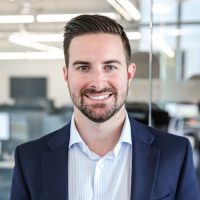
Cody Graham is the founder and president of Neon Logistics. Connect with Cody on LinkedIn.

Anthony Ceritelli is the Director of Customer Success at Turvo. He plays a vital role in the successful journey of Turvo customers from onboarding and user adoption to meeting client requirements and exceeding business objectives. Anthony manages Turvo’s North American team of Customer Success Managers and works with Product Specialists sharing innovative ideas and feedback that help make Turvo TMS and Collaboration Cloud the leading software choice of logistics CEOs and IT professionals used by freight brokers, 3PLs, carriers, and shippers. Anthony has a proven track record in supply chain with more than a decade of experience, including as Senior Manager of Multimodal Operations at Zipline Logistics. Anthony holds a BA in Marketing and Logistics from Ohio State University. Connect with Anthony on LinkedIn.
